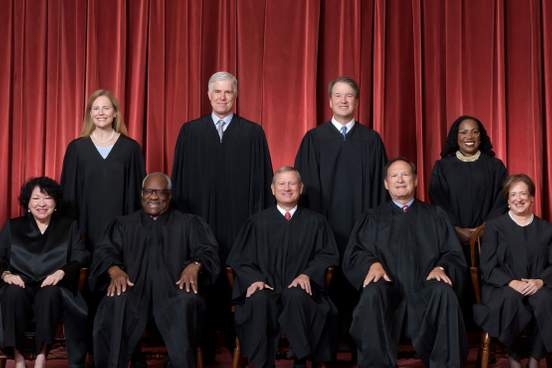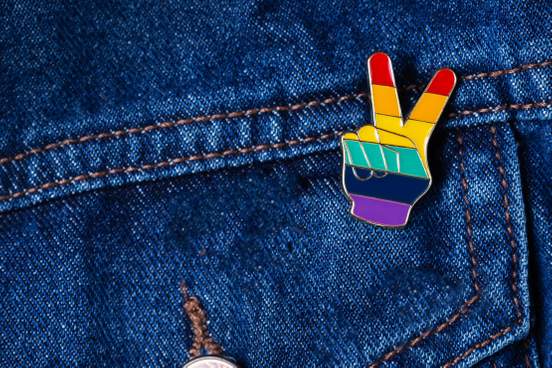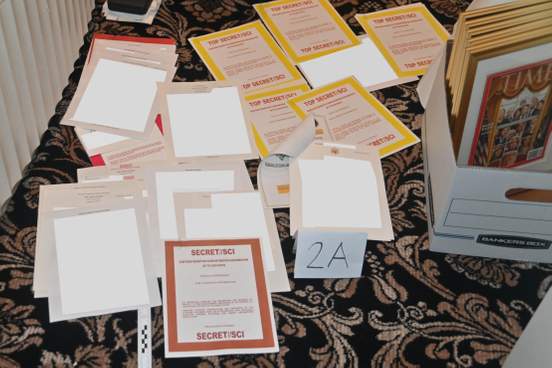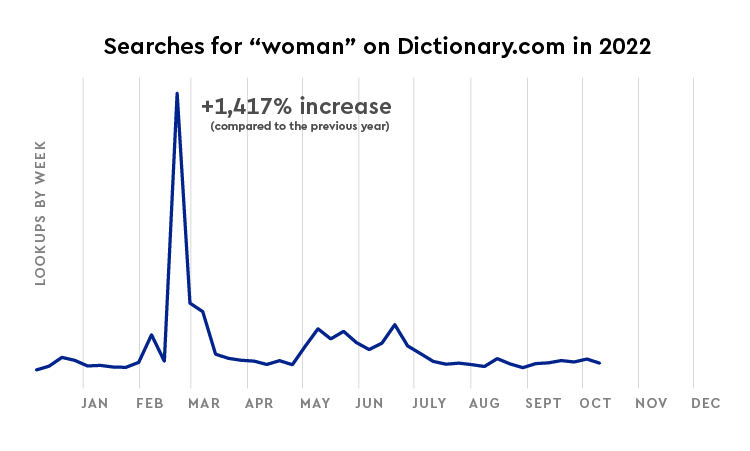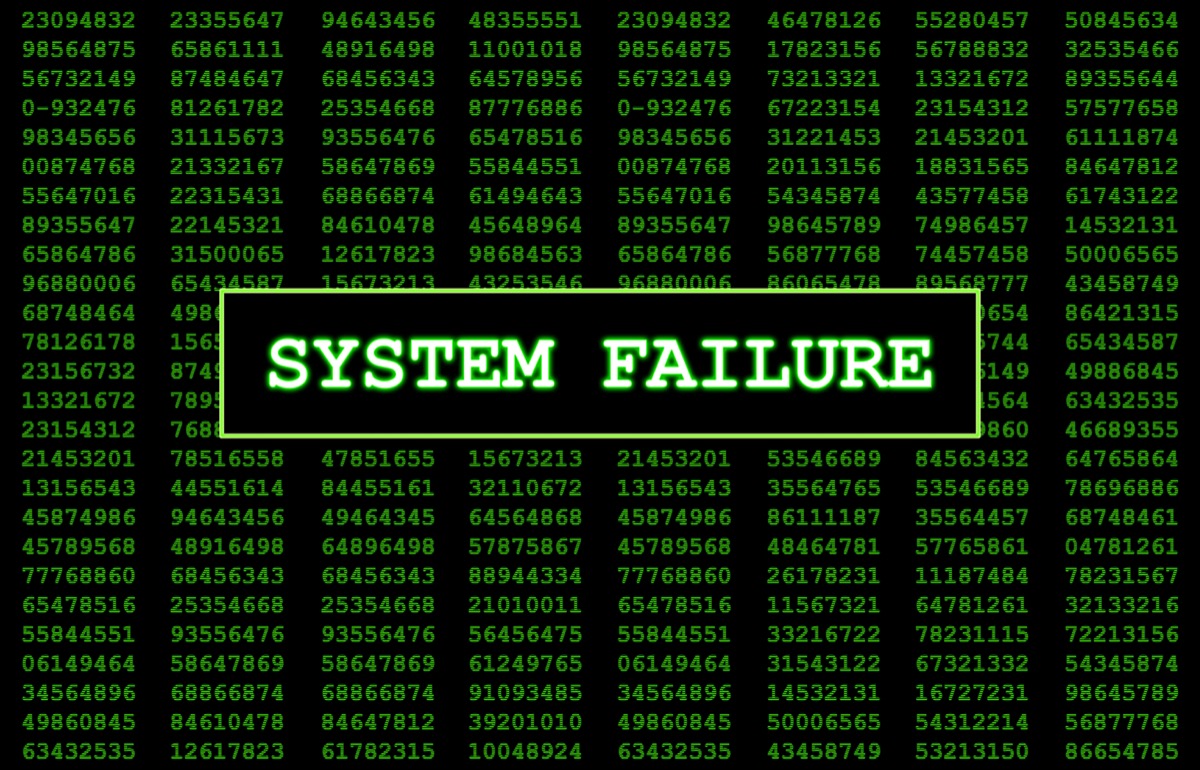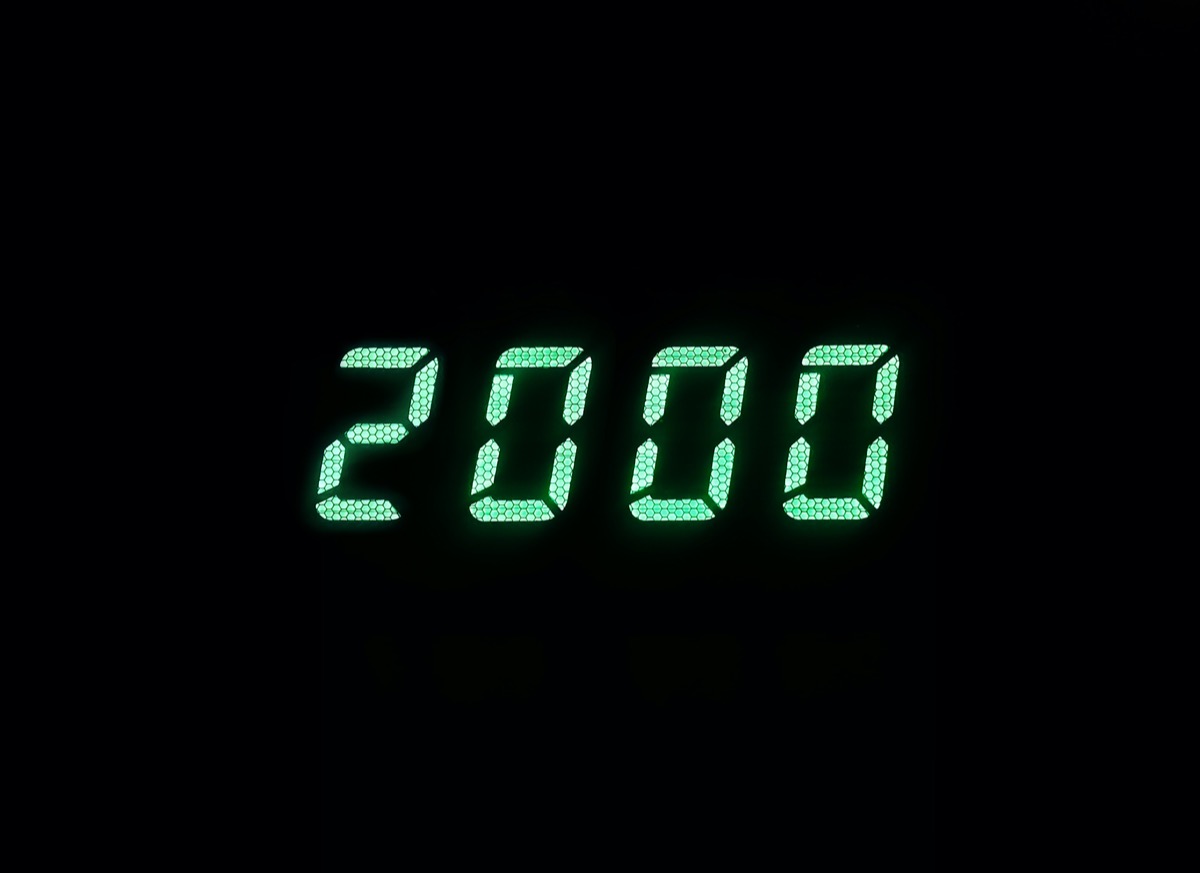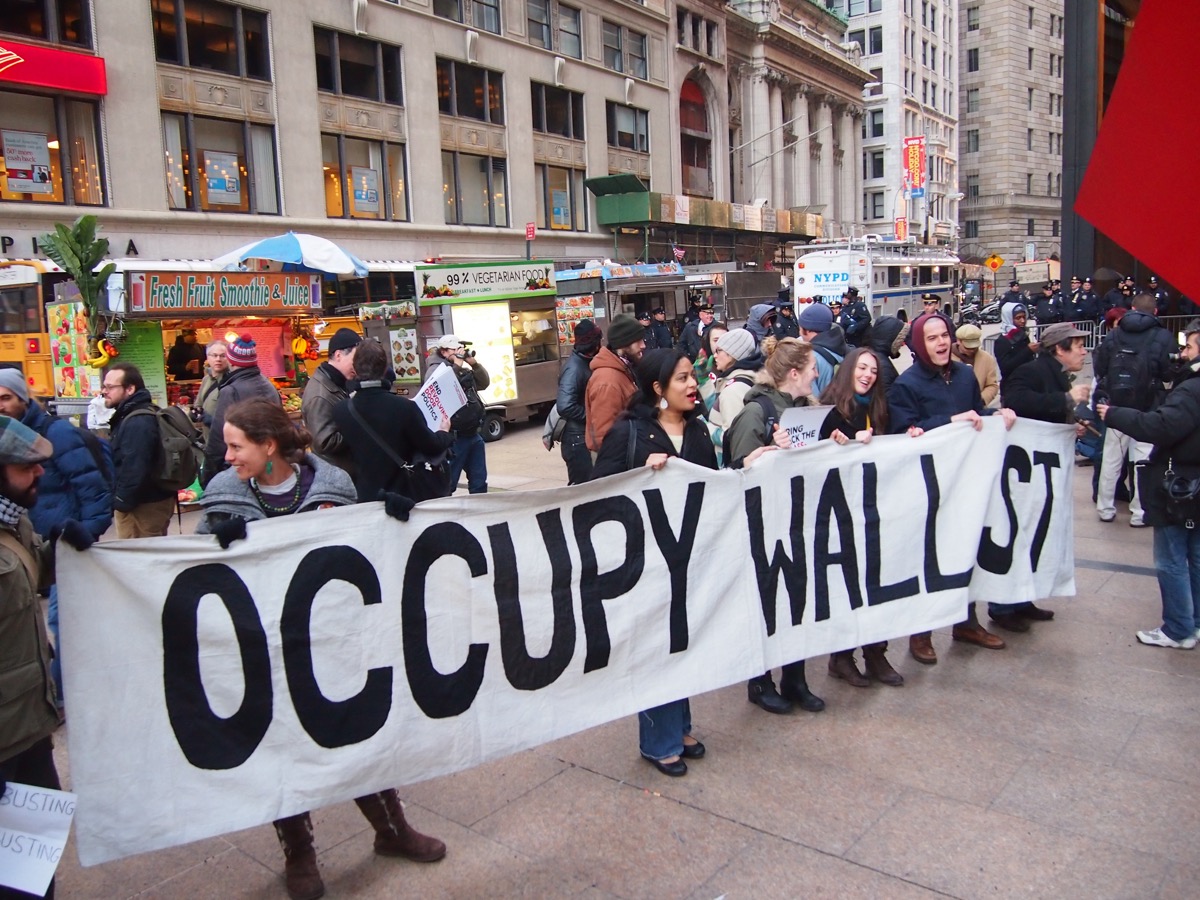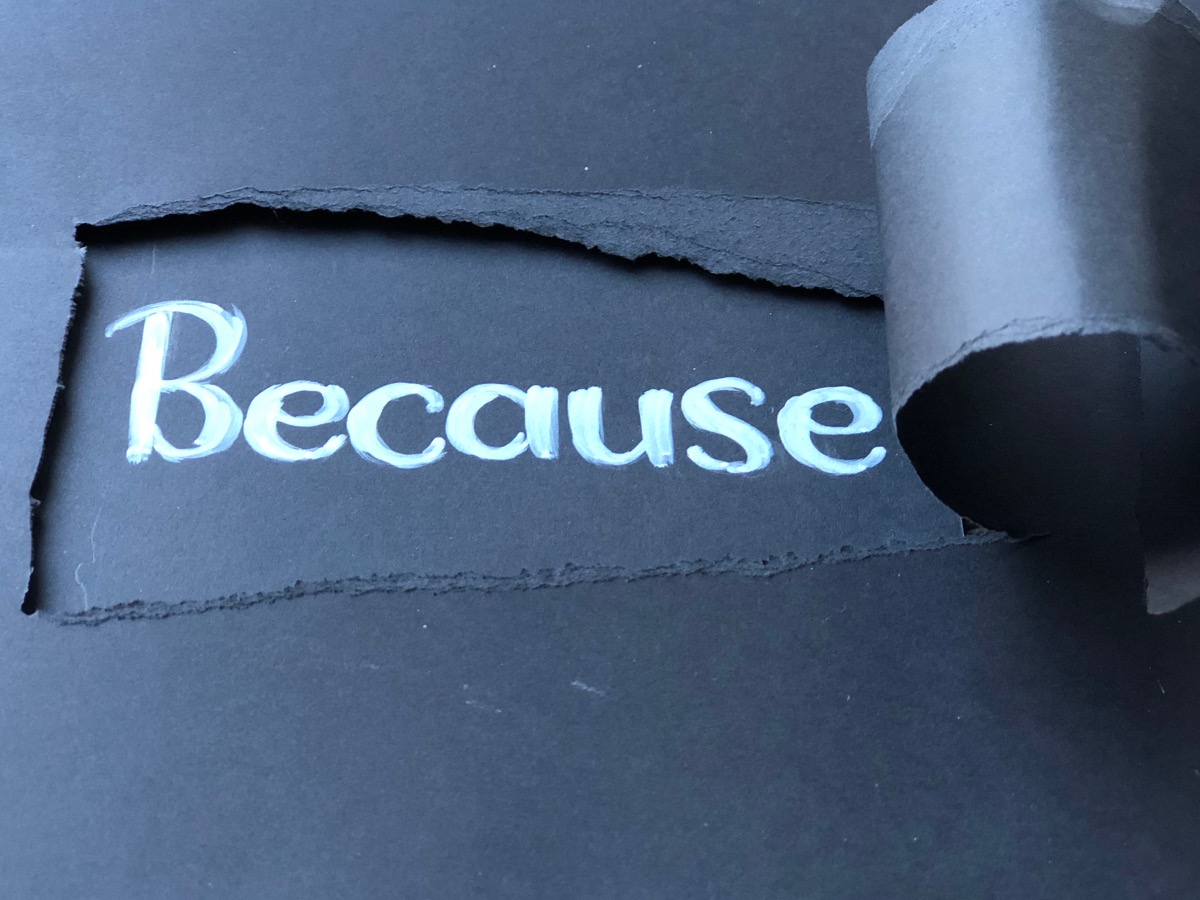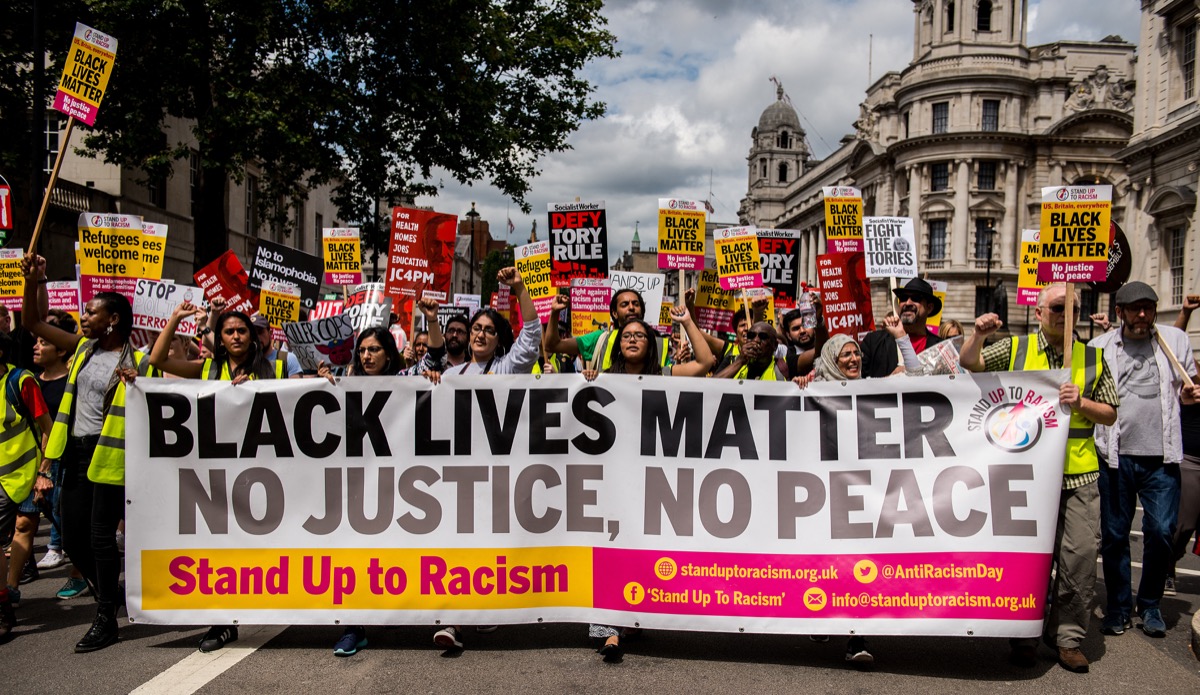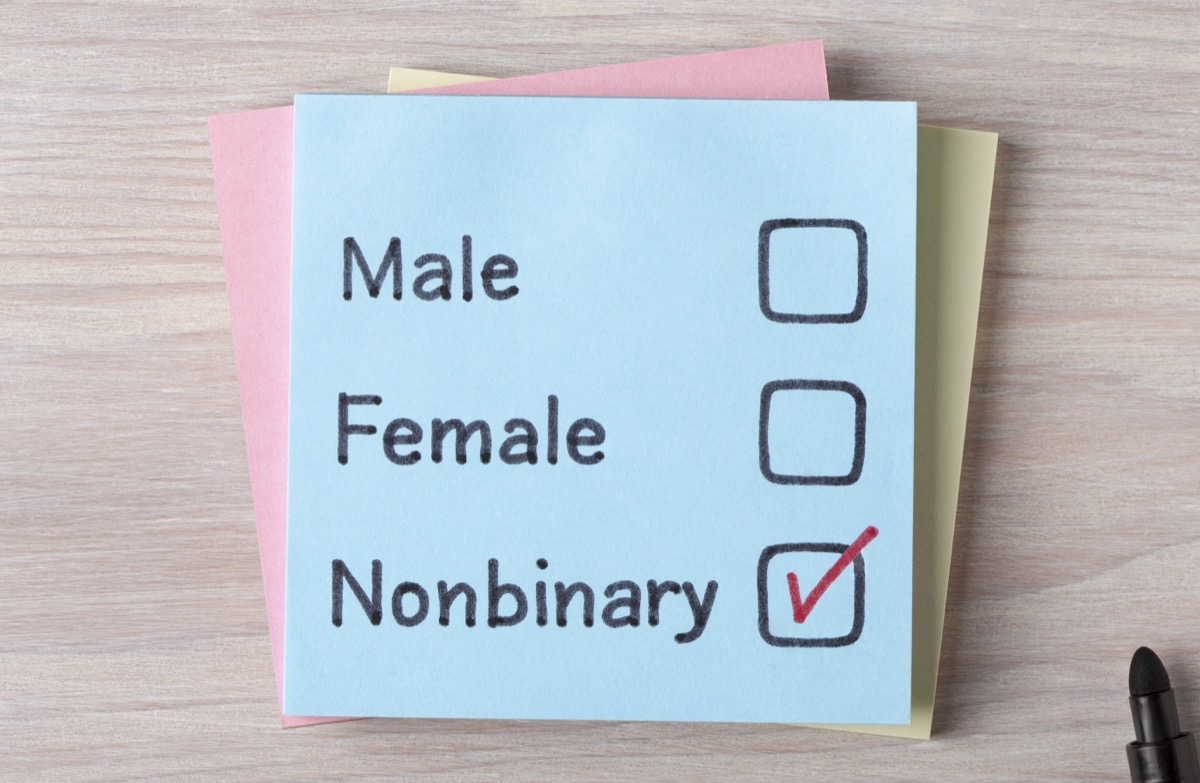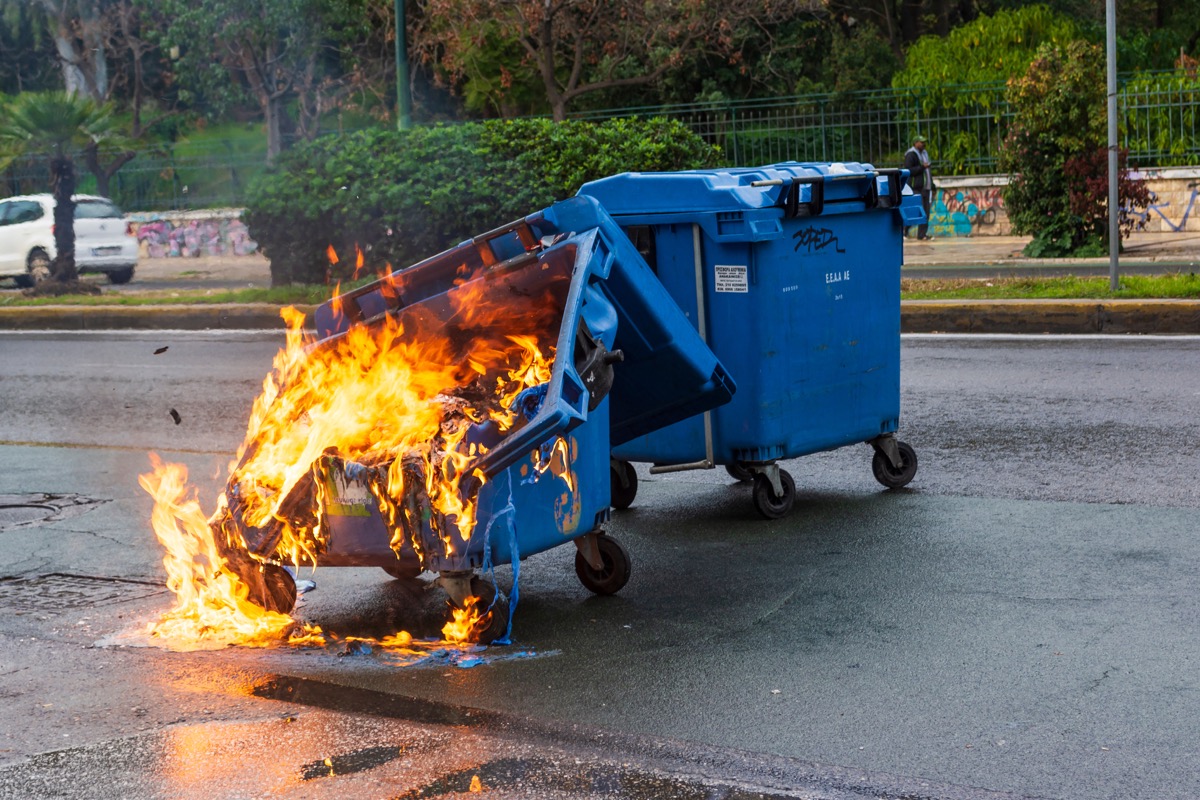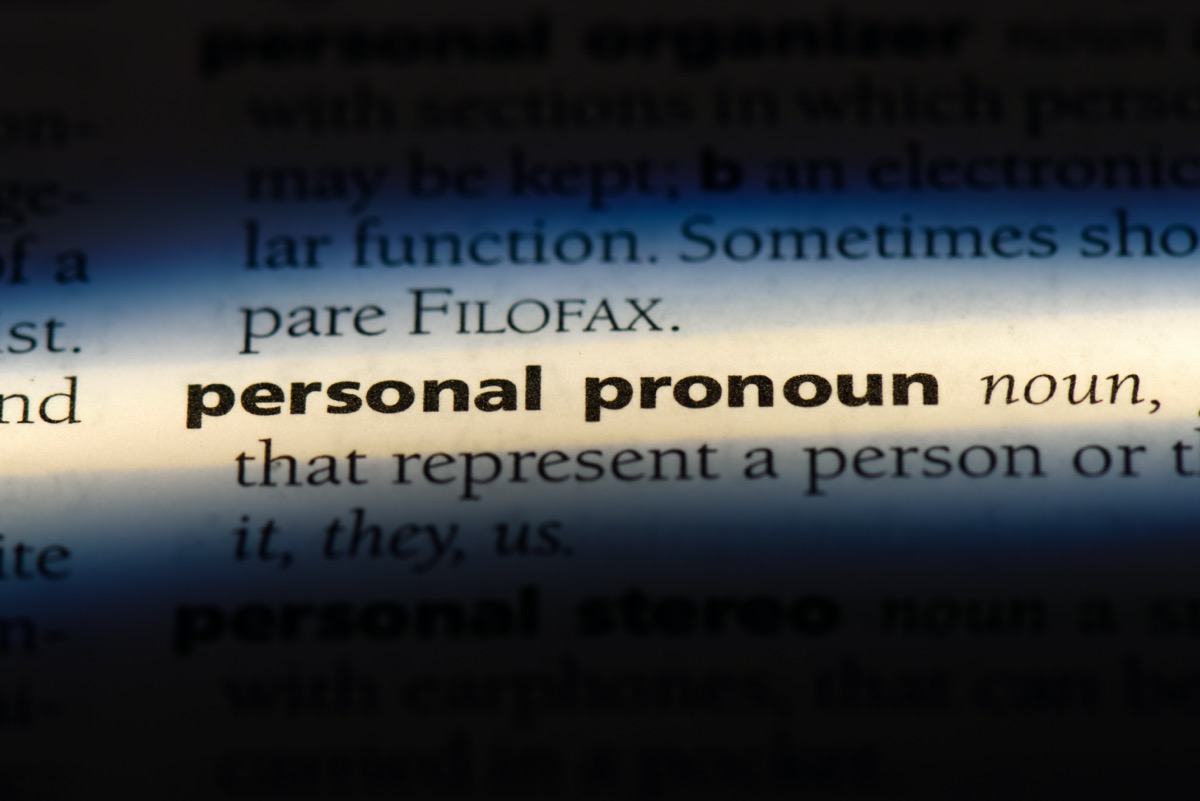From Wikipedia, the free encyclopedia
The word(s) of the year, sometimes capitalized as «Word(s) of the Year» and abbreviated «WOTY» (or «WotY«), refers to any of various assessments as to the most important word(s) or expression(s) in the public sphere during a specific year.
The German tradition, Wort des Jahres was started in 1971. The American Dialect Society’s Word of the Year is the oldest English-language version, and the only one that is announced after the end of the calendar year, determined by a vote of independent linguists, and not tied to commercial interest.[citation needed] However, various other organizations also announce Words of the Year for a variety of purposes.
American Dialect Society[edit]
Since 1990, the American Dialect Society (ADS) has designated one or more words or terms to be the «Word of the Year» in the United States.
List of American Dialect Society’s Words of the Year
In addition to the «Word of the Year», the society also selects words in other categories that vary from year to year. These categories have occurred in several years:
- Most useful
- Most creative
- Most unnecessary
- Most outrageous
- Most euphemistic
- Most likely to succeed
- Least likely to succeed
Australian National Dictionary Centre[edit]
The Australian National Dictionary Centre has announced a Word of the Year each since 2006. The word is chosen by the editorial staff, and is selected on the basis of having come to some prominence in the Australian social and cultural landscape during the year.[1] The Word of the Year is often reported in the media as being Australia’s word of the year,[2][3] but the word is not always an Australian word.
| Year | Word |
|---|---|
| 2006 | podcast |
| 2007 | me-tooism |
| 2008 | GFC |
| 2009 | |
| 2010 | vuvuzela |
| 2011 | |
| 2012 | green-on-blue |
| 2013 | bitcoin |
| 2014 | shirtfront |
| 2015 | sharing economy |
| 2016 | democracy sausage |
| 2017 | Kwaussie |
| 2018 | Canberra bubble |
| 2019 | Voice |
| 2020 | iso |
| 2021 | strollout |
| 2022 | teal |
Cambridge Dictionary[edit]
The Cambridge Dictionary Word of the Year, by Cambridge University Press & Assessment, has been published every year since 2015.[4]
The Cambridge Word of the Year is led by the data — what users look up — in the world’s most popular dictionary for English language learners[5].
In 2022, the Cambridge Word of the Year was ‘homer’, caused by Wordle players looking up five-letter words, especially those that non-American players were less familiar with.[6]
In 2021, the Cambridge Dictionary Word of the Year was ‘perseverance’.[7] In 2020, ‘quarantine’.[8]
| YEAR | |
|---|---|
| 2015 | austerity |
| 2016 | paranoid |
| 2017 | populism |
| 2018 | nomophobia |
| 2019 | upcycling |
| 2020 | quarantine |
| 2021 | perserverance |
| 2022 | homer |
Collins English Dictionary[edit]
The Collins English Dictionary has announced a Word of the Year every year since 2013, and prior to this, announced a new ‘word of the month’ each month in 2012. Published in Glasgow, UK, Collins English Dictionary has been publishing English dictionaries since 1819.[9]
Toward the end of each calendar year, Collins release a shortlist of notable words or those that have come to prominence in the previous 12 months. The shortlist typically comprises ten words, though in 2014 only four words were announced as the Word of the Year shortlist.
The Collins Words of the Year are selected by the Collins Dictionary team across Glasgow and London, consisting of lexicographers, editorial, marketing, and publicity staff, though previously the selection process has been open to the public.
Whilst the word is not required to be new to feature, the appearance of words in the list is often supported by usage statistics and cross-reference against Collins’ extensive corpus to understand how language may have changed or developed in the previous year. The Collins Word of the Year is also not restricted to UK language usage, and words are often chosen that apply internationally as well, for example, fake news in 2017.[10]
| Year | Word of the Year | Definition | Shortlist | ||
|---|---|---|---|---|---|
| 2013 | Geek[11] | If you call someone, usually a man or boy, a geek, you are saying in an unkind way that they are stupid, awkward, or weak.[12] |
|
||
| 2014 | Photobomb[24] | If you photobomb someone, you spoil a photograph of them by stepping in front of them as the photograph is taken, often doing something silly such as making a funny face.[25] |
|
||
| 2015 | Binge-watch[30] | If you binge-watch a television series, you watch several episodes one after another in a short time.[31] |
|
||
| 2016 | Brexit[33] | The withdrawal of the United Kingdom from the European Union in January 2020.[34] |
|
||
| 2017 | Fake news[44] | False, often sensational, information disseminated under the guise of news reporting.[45] |
|
||
| 2018 | Single-use[55] | Made to be used once only.[56] |
|
||
| 2019 | Climate strike[58] | A form of protest in which people absent themselves from education or work to join demonstrations demanding action to counter climate change.[59] |
|
||
| 2020 | Lockdown[58] | If there is a lockdown, people must stay at home unless they need to go out for certain reasons, such as going to work, buying food or taking exercise. |
|
||
| 2021 | NFT[71] | A digital certificate of ownership of a unique asset, such as an artwork or a collectible. |
|
||
| 2022 | Permacrisis[72] | An extended period of instability and insecurity, esp one resulting from a series of catastrophic events. |
Macquarie Dictionary[edit]
The Macquarie Dictionary, which is the dictionary of Australian English, updates the online dictionary each year with new words, phrases, and definitions. These can be viewed on their website.[73]
Each year the editors select a short-list of new words added to the dictionary and invite the public to vote on their favourite. The public vote is held in January and results in the People’s Choice winner. The most influential word of the year is also selected by the Word of the Year Committee which is chaired by the Vice-Chancellor of the University of Sydney, Dr Michael Spence. The Editor of the Macquarie Dictionary, Susan Butler, is also a committee member. The Committee meets annually to select the overall winning words.
The following is the list of winning words since the Macquarie Word of the Year first began in 2006:
| Year | Committee’s Choice | People’s Choice |
|---|---|---|
| 2006 | muffin top | (No overall winner. See Macquarie website for category winners) |
| 2007 | pod slurping | password fatigue |
| 2008 | toxic debt | flashpacker |
| 2009 | shovel ready | tweet |
| 2010 | googleganger | shockumentary |
| 2011 | burqini | fracking |
| 2012 | phantom vibration syndrome | First World problem |
| 2013 | infovore[74] | onesie |
| 2014 | mansplain[75] | shareplate |
| 2015 | captain’s call[76] | captain’s call[77] |
| 2016 | fake news | halal snack pack |
| 2017 | milkshake duck[78][79] | framily[80] |
| 2018 | me too[81][82] | single-use[83] |
| 2019 | cancel culture | robodebt |
| 2020 | doomscrolling, rona | Karen |
| 2021 | strollout[84] | strollout |
| 2022 | teal | bachelor’s handbag[85] |
Merriam-Webster[edit]
The lists of Merriam-Webster’s Words of the Year (for each year) are ten-word lists published annually by the American dictionary-publishing company Merriam-Webster, Inc., which feature the ten words of the year from the English language. These word lists started in 2003 and have been published at the end of each year. At first, Merriam-Webster determined its contents by analyzing page hits and popular searches on its website. Since 2006, the list has been determined by an online poll and by suggestions from visitors to the website.[86]
The following is the list of words that became Merriam-Webster’s Word of the Year since 2003:[87]
- 2003: democracy
- 2004: blog
- 2005: integrity
- 2006: truthiness
- 2007: w00t
- 2008: bailout
- 2009: admonish
- 2010: austerity
- 2011: pragmatic
- 2012: socialism and capitalism
- 2013: science
- 2014: culture
- 2015: -ism
- 2016: surreal
- 2017: feminism[88]
- 2018: justice
- 2019: they
- 2020: pandemic[89]
- 2021: vaccine[90]
- 2022: gaslighting
Oxford[edit]
Oxford University Press, which publishes the Oxford English Dictionary and many other dictionaries, announces an Oxford Dictionaries UK Word of the Year and an Oxford Dictionaries US Word of the Year; sometimes these are the same word. The Word of the Year need not have been coined within the past twelve months but it does need to have become prominent or notable during that time. There is no guarantee that the Word of the Year will be included in any Oxford dictionary. The Oxford Dictionaries Words of the Year are selected by editorial staff from each of the Oxford dictionaries. The selection team is made up of lexicographers and consultants to the dictionary team, and editorial, marketing, and publicity staff.[91]
| Year | UK Word of the Year | US Word of the Year | Hindi Word of the Year |
|---|---|---|---|
| 2004 | chav | ||
| 2005 | sudoku | podcast | |
| 2006 | bovvered | carbon-neutral | |
| 2007 | carbon footprint | locavore | |
| 2008 | credit crunch | hypermiling | |
| 2009 | simples (Compare the Meerkat catchphrase) | unfriend | |
| 2010 | big society | refudiate | |
| 2011 | squeezed middle | ||
| 2012 | omnishambles | GIF (noun) | |
| 2013 | selfie[92] | ||
| 2014 | vape[93] | ||
| 2015 | 😂 (Face With Tears of Joy, Unicode: U+1F602, part of emoji)[94] | ||
| 2016 | post-truth[95] | ||
| 2017 | youthquake[96] | Aadhaar[a] | |
| 2018 | toxic[98] | Nari Shakti or Women Power[99] | |
| 2019 | climate emergency[100] | Samvidhaan or Constitution[101] | |
| 2020 | No single word chosen[102] | Aatmanirbharta or Self-Reliance[103] | |
| 2021 | vax[104] | ||
| 2022 | goblin mode[105][106] |
Grant Barrett[edit]
Since 2004, lexicographer Grant Barrett has published a words-of-the-year list, usually in The New York Times, though he does not name a winner.
- 2004
- 2005
- 2006
- 2007
- 2008
- 2009
- 2010
- 2011
- 2012
- 2013 in New York Times, also a more complete list
- 2014 in Dallas Morning News
Dictionary.com[edit]
In 2010, Dictionary.com announced its first word of the year, ‘change’, and has done so in December every year since.[107] The selection is based on search trends on the site throughout the year and the news events that drive them.[108]
The following is the list of annual words since beginning with the first in 2010:[107]
- 2010: Change
- 2011: Tergiversate
- 2012: Bluster
- 2013: Privacy
- 2014: Exposure
- 2015: Identity
- 2016: Xenophobia
- 2017: Complicit
- 2018: Misinformation
- 2019: Existential[109]
- 2020: Pandemic
- 2021: Allyship
- 2022: Woman
Similar word lists[edit]
A Word a Year[edit]
Since 2004, Susie Dent, an English lexicographer has published a column, «A Word a Year», in which she chooses a single word from each of the last 101 years to represent preoccupations of the time. Susie Dent notes that the list is subjective.[110][111][112] Each year, she gives a completely different set of words.
Since Susie Dent works for the Oxford University Press, her words of choice are often incorrectly referred to as «Oxford Dictionary’s Word of the Year».
Other countries[edit]
In Germany, a Wort des Jahres has been selected since 1972 (for year 1971) by the Society of the German Language.[113] In addition, an Unwort des Jahres (Un-word of the year or No-no Word of the Year) has been nominated since 1991, for a word or phrase in public speech deemed insulting or socially inappropriate (such as «Überfremdung»).[114] Similar selections are made each year since 1999 in Austria, 2002 in Liechtenstein, and 2003 in Switzerland. Since 2008, language publisher Langenscheidt supports a search for the German youth word of the year, which aims to find new words entering the language through the vernacular of young people.[115][116]
In Denmark, the Word of the year has been selected since 2008 by Danmarks Radio and Dansk Sprognævn.
In Japan, the Kanji of the year (kotoshi no kanji) has been selected since 1995. Kanji are adopted Chinese characters in Japanese language. Japan also runs an annual word of the year contest called » U-Can New and Trendy Word Grand Prix» (U-Can shingo, ryūkōgo taishō) sponsored by Jiyu Kokuminsha. Both the kanji and word/phrases of the year are often reflective of Japanese current events and attitudes. For example, in 2011 following the Fukushima power plant disaster, the frustratingly enigmatic phrase used by Japanese officials before the explosion regarding the possibility of meltdown – «the possibility of recriticality is not zero» (Sairinkai no kanōsei zero de wa nai) – became the top phrase of the year. In the same year, the kanji indicating ‘bond’ (i.e. familial bond or friendship) became the kanji of the year, expressing the importance of collectiveness in the face of disaster.[117]
In Norway, the Word of the year poll is carried out since 2012.
In Portugal, the Word of the year poll is carried out since 2009.
In Russia, the Word of the year poll is carried out since 2007.
In Spain, the Word of the year is carried out by Fundéu since 2013.
In Ukraine, the Word of the year poll is carried out since 2013.
See also[edit]
- Language Report from Oxford University Press
- Lists of Merriam-Webster’s Words of the Year
- Neologism
- Doublespeak Award
- Kanji of the year
Further reading[edit]
- John Ayto, «A Century of New Words», Series: Oxford Paperback Reference (2007) ISBN 0-19-921369-0
- John Ayto, «Twentieth Century Words», Oxford University Press (1999) ISBN 0-19-860230-8
Notes[edit]
- ^ First Hindi Word of the Year[97]
References[edit]
- ^ «Australian National Dictionary Centre’s Word of the Year 2016 | Ozwords». ozwords.org. Retrieved October 14, 2017.
- ^ «What exactly is a democracy sausage?». BBC News. December 14, 2016. Retrieved October 14, 2017.
- ^ «‘Shirtfront’ named Australia’s word of the year». ABC News. December 10, 2014. Retrieved October 14, 2017.
- ^ https://dictionary.cambridge.org/editorial/woty[bare URL]
- ^ «Cambridge Dictionary’s word of the year will be a sore spot for Wordle fans».
- ^ «Wordle frustration inspires Cambridge Dictionary’s word of the year». November 17, 2022.
- ^ «‘Perseverance’ named Cambridge Dictionary’s word of the year». Independent.co.uk. November 17, 2021.
- ^ «Cambridge Dictionary’s Word of the Year is ‘quarantine’«. The Times of India.
- ^ «Collins English Dictionary | Definitions, Translations and Pronunciations». www.collinsdictionary.com. Retrieved October 11, 2018.
- ^ Collins Dictionary (November 1, 2017), Collins Dictionary announce their 2017 Word of the Year, archived from the original on December 12, 2021, retrieved October 11, 2018
- ^ Topping, Alexandra (December 16, 2013). «Geek deemed word of the year by the Collins online dictionary». the Guardian. Retrieved October 11, 2018.
- ^ «Geek definition and meaning | Collins English Dictionary». www.collinsdictionary.com. Retrieved October 11, 2018.
- ^ «Collins Word of the Year 2013 is… – New on the blog – Word Lover’s blog – Collins Dictionary». www.collinsdictionary.com. December 12, 2013. Retrieved October 11, 2018.
- ^ «Collins Word of the Year 2013 is… – New on the blog – Word Lover’s blog – Collins Dictionary». www.collinsdictionary.com. December 12, 2013. Retrieved October 11, 2018.
- ^ «Collins Word of the Year 2013 is… – New on the blog – Word Lover’s blog – Collins Dictionary». www.collinsdictionary.com. December 12, 2013. Retrieved October 11, 2018.
- ^ «Collins Word of the Year 2013 is… – New on the blog – Word Lover’s blog – Collins Dictionary». www.collinsdictionary.com. December 12, 2013. Retrieved October 11, 2018.
- ^ «Collins Word of the Year 2013 is… – New on the blog – Word Lover’s blog – Collins Dictionary». www.collinsdictionary.com. December 12, 2013. Retrieved October 11, 2018.
- ^ «Collins Word of the Year 2013 is… – New on the blog – Word Lover’s blog – Collins Dictionary». www.collinsdictionary.com. December 12, 2013. Retrieved October 11, 2018.
- ^ «Collins Word of the Year 2013 is… – New on the blog – Word Lover’s blog – Collins Dictionary». www.collinsdictionary.com. December 12, 2013. Retrieved October 11, 2018.
- ^ «Collins Word of the Year 2013 is… – New on the blog – Word Lover’s blog – Collins Dictionary». www.collinsdictionary.com. December 12, 2013. Retrieved October 11, 2018.
- ^ «Collins Word of the Year 2013 is… – New on the blog – Word Lover’s blog – Collins Dictionary». www.collinsdictionary.com. December 12, 2013. Retrieved October 11, 2018.
- ^ «Collins Word of the Year 2013 is… – New on the blog – Word Lover’s blog – Collins Dictionary». www.collinsdictionary.com. December 12, 2013. Retrieved October 11, 2018.
- ^ «Collins Word of the Year 2013 is… – New on the blog – Word Lover’s blog – Collins Dictionary». www.collinsdictionary.com. December 12, 2013. Retrieved October 11, 2018.
- ^ «And the Collins English Dictionary word of the year is…» The Irish Times. Retrieved October 11, 2018.
- ^ «Photobomb definition and meaning | Collins English Dictionary». www.collinsdictionary.com. Retrieved October 11, 2018.
- ^ reporters, Telegraph (October 23, 2014). «‘Words of Year 2014’ announced». The Daily Telegraph. ISSN 0307-1235. Retrieved October 11, 2018.
- ^ reporters, Telegraph (October 23, 2014). «‘Words of Year 2014’ announced». The Daily Telegraph. ISSN 0307-1235. Retrieved October 11, 2018.
- ^ reporters, Telegraph (October 23, 2014). «‘Words of Year 2014’ announced». The Daily Telegraph. ISSN 0307-1235. Retrieved October 11, 2018.
- ^ reporters, Telegraph (October 23, 2014). «‘Words of Year 2014’ announced». The Daily Telegraph. ISSN 0307-1235. Retrieved October 11, 2018.
- ^ «Binge-watch: Collins’ Word of the Year». BBC News. November 5, 2015. Retrieved October 11, 2018.
- ^ «Binge-watch definition and meaning | Collins English Dictionary». www.collinsdictionary.com. Retrieved October 11, 2018.
- ^ a b c d e f g h i «Top 10 Collins Words of the Year – New on the blog – Word Lover’s blog – Collins Dictionary». www.collinsdictionary.com. November 5, 2015. Retrieved October 11, 2018.
- ^ «‘Brexit’ is Collins’ Word of the Year 2016 | The Bookseller». www.thebookseller.com. Retrieved October 11, 2018.
- ^ «Brexit definition and meaning | Collins English Dictionary». www.collinsdictionary.com. Retrieved October 11, 2018.
- ^ «Top 10 Collins Words of the Year 2016 – New on the blog – Word Lover’s blog – Collins Dictionary». www.collinsdictionary.com. November 3, 2016. Retrieved October 11, 2018.
- ^ «Top 10 Collins Words of the Year 2016 – New on the blog – Word Lover’s blog – Collins Dictionary». www.collinsdictionary.com. November 3, 2016. Retrieved October 11, 2018.
- ^ «Top 10 Collins Words of the Year 2016 – New on the blog – Word Lover’s blog – Collins Dictionary». www.collinsdictionary.com. November 3, 2016. Retrieved October 11, 2018.
- ^ «Top 10 Collins Words of the Year 2016 – New on the blog – Word Lover’s blog – Collins Dictionary». www.collinsdictionary.com. November 3, 2016. Retrieved October 11, 2018.
- ^ «Top 10 Collins Words of the Year 2016 – New on the blog – Word Lover’s blog – Collins Dictionary». www.collinsdictionary.com. November 3, 2016. Retrieved October 11, 2018.
- ^ «Top 10 Collins Words of the Year 2016 – New on the blog – Word Lover’s blog – Collins Dictionary». www.collinsdictionary.com. November 3, 2016. Retrieved October 11, 2018.
- ^ «Top 10 Collins Words of the Year 2016 – New on the blog – Word Lover’s blog – Collins Dictionary». www.collinsdictionary.com. November 3, 2016. Retrieved October 11, 2018.
- ^ «Top 10 Collins Words of the Year 2016 – New on the blog – Word Lover’s blog – Collins Dictionary». www.collinsdictionary.com. November 3, 2016. Retrieved October 11, 2018.
- ^ «Top 10 Collins Words of the Year 2016 – New on the blog – Word Lover’s blog – Collins Dictionary». www.collinsdictionary.com. November 3, 2016. Retrieved October 11, 2018.
- ^ «Fake news is officially 2017’s word of the year». The Independent. Retrieved October 11, 2018.
- ^ «Fake news definition and meaning | Collins English Dictionary». www.collinsdictionary.com. Retrieved October 11, 2018.
- ^ «Collins 2017 Word of the Year Shortlist – New on the blog – Word Lover’s blog – Collins Dictionary». www.collinsdictionary.com. November 2, 2017. Retrieved October 11, 2018.
- ^ «Collins 2017 Word of the Year Shortlist – New on the blog – Word Lover’s blog – Collins Dictionary». www.collinsdictionary.com. November 2, 2017. Retrieved October 11, 2018.
- ^ «Collins 2017 Word of the Year Shortlist – New on the blog – Word Lover’s blog – Collins Dictionary». www.collinsdictionary.com. November 2, 2017. Retrieved October 11, 2018.
- ^ «Collins 2017 Word of the Year Shortlist – New on the blog – Word Lover’s blog – Collins Dictionary». www.collinsdictionary.com. November 2, 2017. Retrieved October 11, 2018.
- ^ «Collins 2017 Word of the Year Shortlist – New on the blog – Word Lover’s blog – Collins Dictionary». www.collinsdictionary.com. November 2, 2017. Retrieved October 11, 2018.
- ^ «Collins 2017 Word of the Year Shortlist – New on the blog – Word Lover’s blog – Collins Dictionary». www.collinsdictionary.com. November 2, 2017. Retrieved October 11, 2018.
- ^ «Collins 2017 Word of the Year Shortlist – New on the blog – Word Lover’s blog – Collins Dictionary». www.collinsdictionary.com. November 2, 2017. Retrieved October 11, 2018.
- ^ «Collins 2017 Word of the Year Shortlist – New on the blog – Word Lover’s blog – Collins Dictionary». www.collinsdictionary.com. November 2, 2017. Retrieved October 11, 2018.
- ^ «Collins 2017 Word of the Year Shortlist – New on the blog – Word Lover’s blog – Collins Dictionary». www.collinsdictionary.com. November 2, 2017. Retrieved October 11, 2018.
- ^ a b c d e f g h i j «Collins Dictionary 2018 word of the year revealed». The Irish Times. November 7, 2018. Retrieved November 8, 2018.
- ^ «Definition of ‘single-use’«. Collins English Dictionary. Retrieved November 8, 2018.
- ^ a b c d e f g h i Quin, Rachel (November 7, 2018). «Collins 2018 Word of the Year Shortlist». Collins English Dictionary. Retrieved November 8, 2018.
- ^ a b «Collins — the Collins Word of the Year 2020 is».
- ^ «Climate strike definition and meaning | Collins English Dictionary». www.collinsdictionary.com. Retrieved April 16, 2021.
- ^ «Collins Word of the Year 2019 shortlist». November 7, 2019.
- ^ «Lockdown definition and meaning | Collins English Dictionary».
- ^ «Coronavirus definition and meaning | Collins English Dictionary».
- ^ «BLM definition and meaning | Collins English Dictionary».
- ^ «Keyworker definition and meaning | Collins English Dictionary».
- ^ «Furlough definition and meaning | Collins English Dictionary».
- ^ «Self-isolate definition and meaning | Collins English Dictionary».
- ^ «Social distancing definition and meaning | Collins English Dictionary».
- ^ «Megxit definition and meaning | Collins English Dictionary».
- ^ «TikToker definition and meaning | Collins English Dictionary».
- ^ «Mukbang definition and meaning | Collins English Dictionary».
- ^ «Get your crypto at the ready: NFTs are big in 2021». Collins Dictionary Language Blog. November 24, 2021. Retrieved December 18, 2021.
- ^ susanwright (November 1, 2022). «A year of ‘permacrisis’«. Collins Dictionary Language Blog. Retrieved November 1, 2022.
- ^ Macquarie Dictionary Word of the Year
- ^ «The Macquarie Dictionary Word of the Year is …» The Conversation. Retrieved January 19, 2016.
- ^ «Macquarie Dictionary words of the year: ‘mansplain’ and ‘share plate’«. The Sydney Morning Herald. February 5, 2015. Retrieved November 18, 2015.
- ^ «Tony Abbott’s lexical legacy: Captain’s call is 2015 Word of the Year». The Sydney Morning Herald. Retrieved January 20, 2016.
- ^ «Macquarie Dictionary Word of the Year». Macquarie Dictionary. Retrieved March 22, 2016.
- ^ Webb, Tiger (January 15, 2018). «Why ‘milkshake duck’ is the perfect choice for word of the year». ABC News. Retrieved January 15, 2018.
- ^ «The Committee’s Choice for Word of the Year 2017 goes to…» Macquarie Dictionary. January 15, 2018. Retrieved January 15, 2018.
- ^ «Committee’s Choice and People’s Choice announced!». Macquarie Dictionary. January 23, 2018. Retrieved February 16, 2018.
- ^ Webb, Tiger (January 15, 2019). «Macquarie Dictionary word of the year goes to ‘me too’, in a year filled with digital uncertainty». ABC News. Retrieved November 4, 2019.
- ^ «The Committee’s Choice for Word of the Year 2018 goes to…» Macquarie Dictionary. January 15, 2018. Retrieved November 4, 2019.
- ^ «Committee’s Choice and People’s Choice announced!». Macquarie Dictionary. December 19, 2018. Retrieved November 4, 2019.
- ^ «Strollout chosen as Macquarie dictionary’s 2021 word of the year». the Guardian. November 29, 2021. Retrieved November 29, 2022.
- ^ «Australia’s word of the year has been revealed». SBS News. Retrieved November 29, 2022.
- ^ «Merriam-Webster launches ‘Word of the Year’ online poll». CNET. November 27, 2007. Retrieved December 29, 2007.
- ^ «Word of the Year Archive». Merriam-Webster. Retrieved December 30, 2013.
- ^ Criss, Doug. «Merriam-Webster’s word of the year for 2017 is ‘feminism’«. CNN. Retrieved December 12, 2017.
- ^ Andrew, Scottie. «‘Pandemic’ is, unsurprisingly, the Word of the Year for Merriam-Webster and Dictionary.com». CNN. Retrieved December 15, 2021.
- ^ Sheidlower, Noah; Zdanowicz, Christina (November 29, 2021). «It’s a beacon of hope and it’s a politicized issue. Merriam Webster’s 2021 word of the year is …» CNN. Retrieved December 15, 2021.
- ^ Oxford Dictionaries Word of the Year: Frequently Asked Questions (viewed November 20, 2013).
- ^ The Oxford Dictionaries Word of the Year 2013 is… (viewed November 20, 2013).
- ^ Grisham, Lori (November 18, 2014). «Oxford names ‘vape’ 2014 Word of the Year». USA Today. Retrieved November 18, 2014.
- ^ «Word of the Year 2015». Oxford Dictionaries. November 16, 2015. Retrieved December 28, 2020.
- ^ «Word of the Year 2016 is… | Oxford Dictionaries». Oxford Dictionaries | English. Archived from the original on November 16, 2016. Retrieved November 19, 2016.
- ^ «Oxford Word of the Year 2017». Oxford Languages. Oxford University Press. Archived from the original on December 16, 2019. Retrieved December 9, 2022.
- ^ Gohain, Manash Pratim (January 28, 2018). «‘Aadhaar’ is Oxford’s first Hindi word of the year». The Times of India. Retrieved March 13, 2021.
- ^ «Toxic: Oxford Dictionaries sums up the mood of 2018 with word of the year». CNN. November 15, 2018. Retrieved November 15, 2018.
- ^ «Nari Shakti Is Oxford Dictionary’s Hindi Word Of The Year 2018». The Indian Express. January 27, 2019. Retrieved March 13, 2021.
- ^ Zhou, Naaman (November 20, 2019). «Oxford Dictionaries declares ‘climate emergency’ the word of 2019». The Guardian. Archived from the original on November 21, 2019. «Climate emergency» was named word of the year.
- ^ «Oxford Hindi Word of the Year 2019 is Samvidhaan». India Today. January 28, 2020. Retrieved March 13, 2021.
- ^ Words of an Unprecedented Year (PDF), Oxford University Press, November 20, 2020, retrieved December 8, 2020
- «Oxford Word of the Year 2020». Oxford University Press.
- ^ «Oxford Hindi Word of the Year 2020 | Oxford Languages». languages.oup.com. Archived from the original on March 13, 2021. Retrieved March 13, 2021.
The Oxford Hindi Word of the Year 2020 is… Aatmanirbharta or Self-Reliance.
- ^ «‘Vax’ Chosen as Word of the Year by Oxford — November 1, 2021″. Daily News Brief. November 1, 2021. Retrieved November 1, 2021.
- ^ James, Imogen (December 5, 2022). «Oxford word of the year 2022 revealed as ‘goblin mode’«. BBC News. Retrieved December 8, 2022.
- ^ «Oxford Word of the Year 2022». Oxford Languages. Oxford University Press. 2022. Archived from the original on November 21, 2022. Retrieved December 9, 2022.
- ^ a b «What Dictionary.com’s words of the year say about us». cnn. Retrieved December 19, 2019.
- ^ «Existential’ crowned word of the year by Dictionary.com». Click on Detroit. Retrieved December 19, 2019.
- ^ «‘Existential’ is Dictionary.com’s Word Of the Year». CBS News. Retrieved December 19, 2019.
- ^ A Word a Year: 1906–2006
- ^ A Word a Year: 1905–2005[dead link]
- ^ A Word a Year: 1904–2004[dead link]
- ^ German Word of the Year
- ^ «Unword of the year» in Germany
- ^ «This is the German youth word of the year for 2020». The Local Germany. October 15, 2020. Retrieved August 15, 2021.
- ^ «The word of the year (whether we like it or not)». The Spectator. Retrieved August 15, 2021.
- ^ Miller, Laura (2017). «Japan’s trendy Word Grand Prix and Kanji of the Year: Commodified language forms in multiple contexts». Language and Materiality: Ethnographic and Theoretical Explorations. Cambridge: Cambridge University Press. pp. 1–28.
External links[edit]
- Top words from 2000 – present @ Global Language Monitor
- Word of the Year Archive @ Macquarie Dictionary
- Word of the Year Archive @ Merriam-Webster
- Word of the Year Archive @ OxfordWords blog
- Austrian Word of the Year
- Canadian Word of the Year
- Liechtenstein Word of the Year
- Switzerland Word of the Year
- Dictionary.com word of the year @ Dictionary.com
The Word of the Year ( Word of the Year , often called Woty was abbreviated) in the United States in 1990 and since then every year from the regular American Dialect Society selected. Since 2000, the Texan Global Language Monitor has also voted for a “Top Word of the year”. In addition, since 2004 Oxford University Press (publisher of the Oxford English Dictionary ) has chosen a “US Word of the Year”.
selection
To be word of the year, it must meet the following criteria:
- the word must be new or have regained popularity,
- it must have been used frequently or in particularly memorable contexts and
- it must relate to an important topic or other aspect of the public discussion.
In addition to the word of the year, society also chooses words in a number of other categories, such as: B. The most useful word, the most creative word and the most unnecessary word.
All members of the society are entitled to vote. The word of the year is chosen by show of hands at the American Dialect Society’s annual conference.
Words of the year
American Dialect Society
| year | Word of the year | Meaning / explanation |
|---|---|---|
| 1990 | bushlips | Loudly based on “bullshit,” refers to George HW Bush’s campaign promise “Read my lips: no new taxes”, which he broke immediately after the election. |
| 1991 | mother of all | From a speech by Saddam Hussein , see Mother of All Battles . |
| 1992 | Need! | Subsequent notice that what was said before is not meant seriously. |
| 1993 | information superhighway | Metaphor for the internet, see information superhighway |
| 1994 | cyber and morph | See morphing |
| 1995 | web and (to) newt | The second of the chosen words refers to an aggressive behavior, such as Newt Gingrich displayed . |
| 1996 | mom | Mother. |
| 1997 | millennium bug | Name for the year 2000 problem |
| 1998 | e- | Prefix in words like “e-mail” and “e-commerce”. |
| 1999 | Y2K | Name for the year 2000 problem . |
| 2000 | chad | Name for the scraps of paper that are created when punching out with an American voting machine. |
| 2001 | 9-11 | Name for the terrorist attacks on September 11, 2001 |
| 2002 | weapons of mass destruction | Weapons of mass destruction |
| 2003 | metrosexual | Term for metrosexuality |
| 2004 | red state , blue state , purple state | Name for states that vote republican, democratic or mixed, see red states and blue states |
| 2005 | truthiness | Name created by Stephen Colbert for “knowledge” based on gut instinct |
| 2006 | plutoed | Term for a devaluation, which refers to the withdrawal of the planetary status of the planet Pluto . |
| 2007 | subprime | Mortgages with low credit ratings, see subprime market |
| 2008 | bailout | Debt assumption by third parties, see rescue operation (economy) |
| 2009 | tweet | Message sent with the short message service Twitter . |
| 2010 | app | Abbreviation for application , see application software . |
| 2011 | occupy | Reference to the Occupy Wall Street movement . |
| 2012 | hashtag | Character string with a preceding hash on Twitter, see hashtag . |
| 2013 | because | English for «because» is used to prefix a noun , adjective, or other part of speech. |
| 2014 | #blacklivesmatter | After the two African Americans Michael Brown and Eric Garner were shot dead by police officers in 2014 , thousands of people protested against racism and police violence . The hashtag #blacklivesmatter was used as a battle cry. |
| 2015 | they | Actually the pronoun of the 3rd person plural , is also used as a gender-neutral pronoun of the 3rd person singular. |
| 2016 | dumpster fire | Literally translated, it means “fire in a dumpster” and describes “an outstandingly disastrous or chaotic situation”. |
| 2017 | fake news | According to the American Dialect Society, the meaning has changed from a term for disinformation to a political catchphrase. |
| 2018 | tender-age shelter | In German, for example, “Accommodation for people of tender age”, a euphemism for prison camps in which the children of illegal immigrants are detained separately from their parents. |
| 2019 | (my) pronouns | Introduces the communication of the third person singular preferred pronouns for oneself. |
The following important information is still missing here:
Also in the two previous decades there were probably words of the decade.
Help Wikipedia by researching and pasting it .
The singular they was also chosen as the “word of the decade (2010-2019)”.
Global Language Monitor
- 2000: chad
- 2001: Ground Zero
- 2002: misunderestimate
- 2003: embedded
- 2004: incivility
- 2005: refugee
- 2006: sustainable
- 2007: hybrid
- 2008: change
- 2009: twitter
- 2010: spillcam
- 2011: occupy
- 2012: apocalypse / armageddon (and variations thereof)
- 2013: 404
- 2014: the heart ♥ emoji (for love)
Oxford University Press
- 2004: chav (also UK Word of the Year )
- 2005: podcast
- 2006: carbon-neutral
- 2007: locavore
- 2008: hypermiling
- 2009: unfriend
- 2010: refudiate
- 2011: squeezed middle (also UK Word of the Year )
- 2012: GIF (verb)
- 2013: selfie (also UK Word of the Year )
- 2014: vape (also UK Word of the Year )
- 2015: ? (also UK Word of the Year )
- 2016: post-truth (also UK Word of the Year )
- 2017: youthquake (also UK Word of the Year )
- 2018: toxic (also UK Word of the Year )
- 2019: climate emergency (also UK Word of the Year )
Web links
- Word of the Year , American Dialect Society website, accessed March 6, 2018.
Individual evidence
- ↑ History of the Top Words of 2008 — 2000 ( Memento of the original from November 10, 2013 in the Internet Archive ) Info: The archive link was automatically inserted and not yet checked. Please check the original and archive link according to the instructions and then remove this notice. , accessed December 14, 2013
- ↑ Oxford Dictionaries Word of the Year: FAQ , accessed December 14, 2013
- ↑ 1998 Words of the Year . Americandialect.org. January 13, 1999. Retrieved March 7, 2013.
- ↑ 1999 Words of the Year, Word of the 1990s, Word of the 20th Century, Word of the Millennium . Americandialect.org. January 13, 2000. Retrieved March 7, 2013.
- ↑ 2000 Words of the Year . Americandialect.org. January 13, 2001. Retrieved March 7, 2013.
- ↑ 2001 Words of the Year . Americandialect.org. January 13, 2002. Retrieved March 7, 2013.
- ↑ 2002 Words of the Year . Americandialect.org. January 13, 2003. Retrieved March 7, 2013.
- ↑ 2003 Words of the Year . Americandialect.org. January 13, 2004. Retrieved March 7, 2013.
- ↑ Word of the Year (PDF; 139 kB) Americandialect.org. January 7, 2005. Retrieved March 7, 2013.
- ↑ Truthiness Voted 2005 Word of the Year . Americandialect.org. January 6, 2006. Retrieved March 7, 2013.
- ↑ «Plutoed» Voted 2006 Word of the Year . Americandialect.org. January 5, 2007. Retrieved March 7, 2013.
- ↑ “Subprime” voted 2007 word of the year . Americandialect.org. January 4, 2008. Retrieved March 7, 2013.
- ↑ American Dialect Society 2008 Word of the Year is “Bailout” . Americandialect.org. January 9, 2009. Retrieved March 7, 2013.
- ↑ 2009 Word of the Year is “tweet”; Word of the Decade is “google” . Americandialect.org. January 8, 2010. Retrieved March 7, 2013.
- ^ «App» voted 2010 word of the year by the American Dialect Society . Americandialect.org. January 8, 2011. Retrieved March 7, 2013.
- ^ «Occupy» is the 2011 Word of the Year . Americandialect.org. January 6, 2012. Retrieved March 7, 2013.
- ↑ “Hashtag” is the 2012 Word of the Year . Americandialect.org. January 4, 2013. Retrieved March 7, 2013.
- ^ «Because» is the 2013 Word of the Year . Americandialect.org. January 3, 2012. Retrieved February 8, 2014.
- ↑ 2014 Word of the Year is “#blacklivesmatter” . Americandialect.org. January 9, 2015. Retrieved January 15, 2015.
- ↑ 2015 Word of the Year is “They” . Americandialect.org. January 8, 2016. Retrieved April 12, 2016.
- ^ «Dumpster fire» is the 2016 American Dialect Society word of the year. In: americandialect.org. January 6, 2017, accessed February 4, 2017 .
- ↑ “Fake news” is the 2017 American Dialect Society word of the year. Ameican Dialect Society , January 5, 2018, accessed March 2, 2018 .
- ^ «Tender-age shelter» is the 2018 American Dialect Society word of the year. In: American Dialect Society. January 5, 2019; Retrieved December 7, 2019 (American English).
- ↑ a b 2019 Word of the Year is “(My) Pronouns,” Word of the Decade is Singular “They”. In: American Dialect Society. January 4, 2020, accessed February 8, 2020 (American English).
- ↑ Word of the Year 2016 is… | Oxford Dictionaries. Retrieved February 14, 2017 .
- ↑ Word of the Year 2017 is… Oxford Dictionaries, accessed on March 2, 2018 .
- ↑ Word of the Year 2018 is … Accessed December 7, 2019 .
- ↑ Word of the Year 2019. Accessed December 7, 2019 .
In this age of misinformation—of “fake news,” conspiracy theories, Twitter trolls, and deepfakes—gaslighting has emerged as a word for our time.
A driver of disorientation and mistrust, gaslighting is “the act or practice of grossly misleading someone especially for one’s own advantage.” 2022 saw a 1740% increase in lookups for gaslighting, with high interest throughout the year.
Its origins are colorful: the term comes from the title of a 1938 play and the movie based on that play, the plot of which involves a man attempting to make his wife believe that she is going insane. His mysterious activities in the attic cause the house’s gas lights to dim, but he insists to his wife that the lights are not dimming and that she can’t trust her own perceptions.
When gaslighting was first used in the mid 20th century it referred to a kind of deception like that in the movie. We define this use as:
: psychological manipulation of a person usually over an extended period of time that causes the victim to question the validity of their own thoughts, perception of reality, or memories and typically leads to confusion, loss of confidence and self-esteem, uncertainty of one’s emotional or mental stability, and a dependency on the perpetrator
But in recent years, we have seen the meaning of gaslighting refer also to something simpler and broader: “the act or practice of grossly misleading someone, especially for a personal advantage.” In this use, the word is at home with other terms relating to modern forms of deception and manipulation, such as fake news, deepfake, and artificial intelligence.
The idea of a deliberate conspiracy to mislead has made gaslighting useful in describing lies that are part of a larger plan. Unlike lying, which tends to be between individuals, and fraud, which tends to involve organizations, gaslighting applies in both personal and political contexts. It’s at home in formal and technical writing as well as in colloquial use:
Patients who have felt that their symptoms were inappropriately dismissed as minor or primarily psychological by doctors are using the term “medical gaslighting” to describe their experiences and sharing their stories.— The New York Times, 28 March 2022
The “I’m sorry you feel that way” approach, along with avoiding an argument in lieu of admitting fault, is good old fashioned gaslighting. — Psychology Today, 29 March 2022
My Committee’s investigation leaves no doubt that, in the words of one company official, Big Oil is ‘gaslighting’ the public. These companies claim they are part of the solution to climate change, but internal documents reveal that they are continuing with business as usual. — Rep. Carolyn B. Maloney, Chairwoman of the Committee on Oversight and Reform, 14 September 2022
After their fight awkwardly cleared the daybed, the two parted ways and Genevieve caught Victoria up on the unexpected blowout. “He told me I’m gaslighting him. I’ve never even been told that in my life,” Gen said. “Yeah that’s a big word to use… He doesn’t know what that means. He’s just using a buzzword, he’s stupid. He’s dumb,” Victoria replied. — Nicole Gallucci, Decider (decider.com), 2 November 2022
English has plenty of ways to say “lie,” from neutral terms like falsehood and untruth to the straightforward deceitfulness and the formally euphemistic prevarication and dissemble, to the innocuous-sounding fib. And the Cold War brought us the espionage-tinged disinformation.
In recent years, with the vast increase in channels and technologies used to mislead, gaslighting has become the favored word for the perception of deception. This is why (trust us!) it has earned its place as our Word of the Year.
With the Russian invasion of Ukraine, countries including the U.S. and United Kingdom placed sanctions on Russian oligarchs and their families. Lookups for oligarch spiked 621% in early March 2022.
In its Greek roots oligarchy literally means “rule by the few.” In English the word can carry the same meaning, but it also has a meaning specific to Russia and other countries that succeeded the Soviet Union:
: one of a class of individuals who through private acquisition of state assets amassed great wealth that is stored especially in foreign accounts and properties and who typically maintain close links to the highest government circles
Throughout 2022 we have seen stories about various authorities seizing the yachts owned by these rich Russian allies of President Putin.
The war in Ukraine has also driven spikes in lookups for sanction, Armageddon, and conscript.
The World Health Organization uses Greek letters (alpha, beta, gamma, delta) to designate variants of the COVID virus. In November 2021, it used omicron, the 15th letter of the Greek alphabet, to name the most recent version of the virus. That variant became one of the most widespread forms of COVID in 2022.
Major spikes in lookups accompanied a surge in cases in early January, and following reports in November that the omicron booster was not significantly more effective than the older vaccines.
Endemic, used to describe a disease that is constantly present in a particular place, increased 874% in January.
Photo: Fred Schilling, Collection of the Supreme Court of the United States
Lookups for codify increased 193% for the year in 2022, driven by the Supreme Court’s decision to overturn Roe v. Wade on June 24th.
Codify refers to a process by which Congress can make laws; the word literally means “to make a code” with code here essentially a synonym of “law.” Code ultimately comes from the Latin word codex, meaning “trunk of a tree,” referring to documents on wooden tablets.
There were several notable spikes in lookups of codify:
May 3 (leak of the draft of the Dobbs v. Jackson decision): 5347%
June 24 (the decision announcement): 1293%
June 30 (President Biden’s endorsement of ending the filibuster in order to codify the right to abortion): 8304%
We also saw spikes in other lookups connected to this story: abortion lookups were higher in June, and both take for granted and mercurial, used to describe Chief Justice John Roberts, were higher in May.
The acronym LGBTQIA adds some letters to the older and more familiar abbreviations LGBT and LGBTQ, with the full abbreviation standing for “lesbian, gay, bisexual, transgender, queer/questioning (one’s sexual or gender identity), intersex, and asexual/aromantic/agender.”
The abbreviation was looked up frequently (up 1178%) during the entire month of June, Pride month, when the rights, equality, and culture of LGBTQ people are celebrated around the world. Lookups also spiked in late November after the shooting at a gay nightclub in Colorado Springs. With LGBTQ and the longer acronym both used in news stories about the event, interest in the difference between the two was apparent. Overall, LGBTQIA saw an 800% increase over 2021.
In June, when a Google engineer claimed the company’s AI chatbot had developed a human-like consciousness, lookups of sentient increased 480%. The claim was vigorously denied by Google, and the engineer was placed on paid leave, but the question of how human-like AI is, or will be, became a topic of much interest.
Loamy
2022 was also the year that many people discovered the joy in puzzling out five-letter words: both Wordle (in which the puzzler has six tries to identify one word) and Quordle (nine guesses to identify four words) sent people to the dictionary, with numerous seldom-searched-for words tapped out on keyboards everywhere. When loamy (“consisting of loam, a soil consisting of a friable mixture of varying proportions of clay, silt, and sand”) was a Quordle answer on August 29th, the entry surged 4.5 million percent. In May, the Quordle answer voilà inspired a lookup spike of 2.5 million percent.
Photo: United States Department of Justice
When the FBI executed a search warrant at former president Donald Trump’s Mar-a-Lago home in early August, the event was labeled by some as a “raid,” sending lookups of raid up 970%. The relevant meaning of raid, “a sudden invasion by officers of the law,” was used to suggest that the search was unfair. In late August the Justice Department responded to that charge by releasing a redacted affidavit, sending lookups of redact and redacted up 1000%.
For the remainder of the year, this story created additional spikes in lookups. The large quantity of documents—33 boxes’ worth—was often called a “trove” by journalists, a trove being a valuable collection, or more generally a large amount of something collected. Trove was up 344% for the year. Defenders of the former president accused the government of behaving like a banana republic—that is, like a small and despotically run country, driving a lookup increase of of 3750%.
The death of Queen Elizabeth II was the end of an era, and the focus of international attention and fascination. The public’s interest in the monarchy is often connected with the ceremonies and rituals of the institution, including coronations, royal weddings—and funerals. Among the most looked-up terms following the Queen’s death was pomp and circumstance, as images of processions and pageantry were broadcast around the world. Monarch itself was also looked up frequently.
Announcements of the Queen’s death acknowledged the new King and his wife, Camilla, referred to by her proper title of Queen Consort, and that term quickly shot to the top of lookups. Since England had not had a king since 1952, it’s understandable that this title was unfamiliar. Camilla is not the successor to the Queen, but is instead the wife of the reigning king. A parallel title for the husband of a reigning queen, prince consort, was the title held by the late Prince Philip.
Another royal milestone sent people to the dictionary in May and June to look up jubilee, meaning “a special anniversary.” The term described the official celebrations for Queen Elizabeth’s unprecedented 70th anniversary on the throne.
Words of the Year
Nominations for Words of the Year can be submitted all year long to woty@americandialect.org. All previous winners are listed here.
- 2022 Word of the Year is “-ussy” January 6, 2023
- Nominations for Words of the Year 2022 January 6, 2023
- Now Accepting Nominations for 2022 Word of the Year December 9, 2022
- 2021 Word of the Year is “Insurrection” January 7, 2022
- Nominations for Words of the Year 2021 January 7, 2022
- Now Accepting 2021 Words-of-the-Year Nominations December 22, 2021
- 2020 Word of the Year is “Covid” December 17, 2020
- Nominations for Words of the Year 2020 December 17, 2020
- Register for the free 2020 Virtual Word-of-the-Year Livestream Vote November 17, 2020
- 2019 Word of the Year is “(My) Pronouns,” Word of the Decade is Singular “They” January 3, 2020
- Nominations for Words of the Year 2019 and Words of the Decade 2010-2019 January 3, 2020
- Schedule for Annual Conference in New Orleans, Jan. 2–5, 2020 November 24, 2019
- “Tender-age shelter” is 2018 American Dialect Society word of the year January 4, 2019
- Nominations for 2018 Word of the Year posted January 4, 2019
- Call for Papers for 2019 American Dialect Society Annual Meeting in New York City, January 3-6 April 19, 2018
- “Fake news” is 2017 American Dialect Society word of the year January 5, 2018
- Nominations for 2017 Word of the Year posted January 5, 2018
- Nominations now being accepted for 2017 words of the year December 20, 2017
- “Dumpster fire” is 2016 American Dialect Society word of the year January 6, 2017
- Nominations for 2016 Word of the Year posted January 6, 2017
- Nominations now being accepted for 2016 words of the year December 12, 2016
- 2015 Word of the Year is singular “they” January 8, 2016
- Nominations for 2015 Word of the Year posted January 8, 2016
- The 2015 word-of-the-year candidates so far… December 29, 2015
- 2014 Word of the Year is “#blacklivesmatter” January 9, 2015
- UPDATED Schedule for Annual Meeting in Portland, Ore., Jan. 8-11, 2015 January 9, 2015
- Nominations for 2014 Word of the Year posted January 9, 2015
- “Because” is the 2013 Word of the Year January 3, 2014
- Nominations for 2013 Word of the Year posted January 2, 2014
- 2013 Word of the Year Candidates December 28, 2013
- “Hashtag” is the 2012 Word of the Year January 4, 2013
- Nominations for 2012 Word of the Year posted January 3, 2013
- UPDATED: Schedule of the 2013 American Dialect Society Annual Meeting in Boston January 3, 2013
- What’s Your 2012 Word of the Year? December 14, 2012
- “Occupy” is the 2011 Word of the Year January 6, 2012
- Nominations for 2011 word of the year posted January 5, 2012
- Fodder for the 2011 Words of the Year Vote January 4, 2012
- Schedule and Abstracts for 2012 Annual Meeting in Portland (Updated) December 6, 2011
- What’s Your Word of the Year? November 30, 2011
- Call for papers: American Dialect Society Annual Meeting 2012, Portland April 27, 2011
- “App” voted 2010 word of the year by the American Dialect Society (UPDATED) January 8, 2011
- Nominations for 2010 word of the year posted January 7, 2011
- UPDATED: American Dialect Society Annual Meeting 2011 in Pittsburgh, January 6–8 January 3, 2011
- Now accepting nominations for the 2010 word of the year December 20, 2010
- UPDATED: American Dialect Society Annual Meeting 2011 in Pittsburgh, January 6–8 November 3, 2010
- 2009 Word of the Year is “tweet”; Word of the Decade is “google” January 8, 2010
- Word of the year 2009 and word of the decade 2000-2009 nominations finalized; voting January 8 January 7, 2010
- Early nominations received for the 2009 word of the year vote December 21, 2009
- Now accepting nominations for the 2009 “word of the year” and the 2000-9 “word of the decade” November 15, 2009
- American Dialect Society Annual Meeting 2010 Baltimore, January 7–9 (UPDATED) November 10, 2009
- Word of the Decade Nominations Open for 2000-2009 January 16, 2009
- American Dialect Society 2008 Word of the Year is “Bailout” January 9, 2009
- UPDATED: Early nominations for the grandaddy of all 2008 word-of-the-year votes are released December 29, 2008
- American Dialect Society seeks 2008 word-of-the-year nominations November 20, 2008
- “Subprime” voted 2007 word of the year January 4, 2008
- 2007 words of the year nominations posted January 3, 2008
- Early Word of the Year Nominations for 2007 December 18, 2007
- Nominate your 2007 words of the year November 17, 2007
- “Plutoed” Voted 2006 Word of the Year January 5, 2007
- 2006 Words of the Year Nominations Are Complete; Voting Fri., Jan. 5 January 5, 2007
- More word-of-the-year nominations January 3, 2007
- Word of the Year Nominations Being Accepted December 24, 2006
- Words of the Year Nominating Commences December 13, 2006
- Updated Program and Sked for 2007 Conference December 11, 2006
- Truthiness Voted 2005 Word of the Year January 6, 2006
- 2005 Word of the Year Nominations January 6, 2006
- Words of the Year 2005 Preview December 21, 2005
- 2004 Words of the Year January 7, 2005
- 2004 Words of the Year Nominations Received December 28, 2004
- 2004 Words of the Year Vote scheduled December 27, 2004
- 2003 Words of the Year January 13, 2004
- 2002 Words of the Year January 13, 2003
- 2001 Words of the Year January 13, 2002
- 2001 Words of the Year Vote Anticipated December 19, 2001
- 2000 Words of the Year January 13, 2001
- 1999 Words of the Year, Word of the 1990s, Word of the 20th Century, Word of the Millennium January 13, 2000
- 1998 Words of the Year January 13, 1999
Самое важное слово или выражение в общественной сфере в течение определенного года
Слово ( s) года, иногда с заглавной буквы как «Слово (я) года » и сокращенно «WOTY » (или «WotY »), относится к любой из различных оценок наиболее важных слов или выражений в публичной сфере в течение определенного года.
Немецкая традиция, Wort des Jahres, была начата в 1971 году. Слово года Американского диалектного общества является старейшей англоязычной версией, а только один, который объявляется после окончания календарного года, определяемого голосованием независимых лингвистов и не привязанного к коммерческим интересам. Однако различные другие организации также объявляют «Слова года» для различных целей.
Содержание
- 1 Американское диалектное общество
- 1.1 Выбор
- 1.2 Категории
- 1.2.1 Самые полезные
- 1.2.2 Самые креативные
- 1.2.3 Самые ненужные
- 1.2. 4 Наиболее возмутительное
- 1.2.5 Наиболее эвфемистическое
- 1.2.6 С наибольшей вероятностью успеха
- 1.2.7 Наименьшее вероятность успеха
- 1.2.8 Особые категории
- 2 Австралийский национальный словарь-центр
- 3 Collins English Dictionary
- 4 Macquarie Dictionary
- 5 Merriam-Webster
- 6 Oxford
- 7 Grant Barrett
- 8 Dictionary.com
- 9 Списки похожих слов
- 9.1 Одно слово в год
- 9.2 Другие страны
- 10 См. Также
- 11 Дополнительная литература
- 12 Ссылки
- 13 Внешние ссылки
Американское общество диалектов
С 1991 года американский диалект Общество (ADS) определило одно или несколько слов или терминов как «Слово года» в США
|
|
В конце каждого десятилетия общество также выбирает a Word of the Decade : web для 1990-х, google (как глагол) для 2000-х, и в единственном числе они для 2010-х. В 2000 году джаз был выбран как «Слово 20 века», а она — как «Слово прошлого тысячелетия».
Выбор
Среди других кандидатов на «Слово года»:
- 2006: Плутоновый ритм «климатическая канарейка » (то, что плохо со здоровьем указывает на надвигающуюся экологическую катастрофу) во втором туре голосования за слово 2006 года. В числе других слов были порка (реклама, замаскированная под блог или веб-журнал), The Decider (политическая фраза, произнесенная бывшим президентом США Джорджем Бушем), «запрещенные жидкости» (жидкости, которые не могут перевозиться пассажирами в самолетах), и макака (американский гражданин, рассматриваемый как иностранец)
- 2007: Среди претендентов были зеленые- (обозначение экологической проблемы, как в greenwashing ), всплеск (увеличение численности войск в зоне боевых действий, как в иракской войне 2007 года ), Facebook (все части речи), погружение в воду (метод допроса, при котором субъекта обездвиживают и обливают водой для имитации утопления), Googlegänger (портмоне из Google и Doppelgänger, что означает лицо с вашим именем, которое появляется, когда вы сами гуглите), и широкая позиция, «иметь -» (лицемерить или выражать две противоречивые точки зрения в отношении сенатора Ларри Крейг после ареста 2007 года в аэропорту)
- 2010: Ном проиграл во втором туре с приложением
- 2011: 99%, 99 процентов и аббревиатура FoMO (Страх пропустить ) проиграл во втором туре с занятием
- 2012: Другими кандидатами были YOLO (аббревиатура от «You Only Live Once», часто используется саркастически или самоуничижительно), фискальный обрыв (угроза сокращения расходов и повышения налогов, нависшая над переговорами по бюджету на конец года), стиль Каннам (модный стиль Сеула район Каннамгу, как используется в корейской поп-песне с тем же названием ), равенство в браке (юридическое признание однополых браков) и 47 процентов (заявленная часть населения, которая не платит федеральный подоходный налог).
- 2013: косая черта: используется в качестве координирующего союза для обозначения «и / или» (например, «приехать и посетить косая черта, оставайся «) или» так «(» Я люблю это место, косая черта, мы можем туда пойти? «), тверк : режим танца, который включает энергичную попку- тряска и толкание ягодиц, обычно с опущенными ногами, Obamacare : термин для Закона о доступном медицинском обслуживании, который перешел от уничижительного до прозаического, а селфи : сделана фотография самого себя, как правило, с помощью смартфона и размещенного в социальных сетях.
- 2014: bae: возлюбленный или романтический партнер, columbusing : культурное присвоение, особенно акт белого человека, утверждающего, что открыл вещи, уже известные культурам меньшинств, даже: иметь дело или примирять сложные ситуации или эмоции (от «Я даже не могу»), человеческое распространение : человека, сидящего широко расставленными ногами в общественном транспорте в способ, который блокирует другие места.
Категории
В дополнение к «Слову года» общество также выбирает слова из других категорий, которые меняются из года в год:
Большинство полезный
- 2008:Барак Обама (в частности, использование обоих имен как объединяющих форм, таких как ObamaMania или Obamacare )
- 2009: фаи l (существительное или междометие, используемое, когда что-то явно неудачно)
- 2010: nom (звукоподражание форма, имеющая значение для еды, особенно. приятно)
- 2011: humblebrag (выражение ложного смирения, особенно знаменитостей в Твиттере)
- 2012: — (po) calypse, — (ma) geddon (гиперболическое комбинирование форм различных катастроф)
- 2013: из-за введения существительного, прилагательного или другой части речи (например, «потому что причины», «потому что потрясающе»).
- 2014 : даже (иметь дело или примирять сложные ситуации или эмоции, из «Я даже не могу»)
- 2015: они (гендерно-нейтральное местоимение единственного числа для известного человека, особенно как небинарный идентификатор)
- 2016: газлайт (психологически манипулировать человеком, чтобы поставить под сомнение его собственное здравомыслие)
- 2017: умереть в результате самоубийства (вариант «совершить самоубийство», который не предполагает преступного деяния)
Самый креативный
- 2008: Зона рекомбинации: зона в Международном аэропорту им. Генерала Митчелла, в которой пассажиры, прошедшие досмотр, могут привести в порядок свою одежду и вещи.
- 2009: Дракула чихание: прикрывать рот согнутым локтем во время чихания, что похоже на популярные изображения вампира Дракулы, в которых он прячет нижнюю половину лица плащом.
- 2010: prehab: превентивный запись в реабилитационный центр для предотвращения рецидива проблемы жестокого обращения.
- 2011: Мелленкамп: женщина, которая постарела из-за того, что она «пума », названа в честь Джона Кугара Мелленкампа.
- 2012: вши у ворот: пассажиры авиакомпаний, которые толпятся вокруг выхода и ждут посадки.
- 2013: сом : чтобы представить себя в Интернете в ложном свете, особенно как часть романтического обмана.
- 2014: columbusing: культурное присвоение, особенно акт белого человека, заявляющего об открытии вещей, уже известных культурам меньшинств.
- 2015: ammosexual: тот, кто любит огнестрельное оружие в фетишистской манере.
- 2016: laissez-fairydust: магический эффект, вызванный экономикой laissez-faire.
Самое ненужное
- 2008: moofing (PR-фирма- создан термин для работы на ходу с ноутбуком и мобильным телефоном)
- 2009: sea kittens (попытка ребрендинга рыбы со стороны PETA )
- 2010: refudiate ( смесь слов опровергнуть и отвергнуть, использованная Сарой Пэйлин в Твиттере)
- 2011: двукратный выигрыш (термин, используемый Чарли Шином для описания сам гордо отвергая обвинения в биполярном )
- 2012:законном изнасиловании (тип изнасилования, который, по утверждению кандидата в Сенат Миссури Тодд Акин, редко приводит к беременности)
- 2013: sharknado (торнадо, полное акул, как показано в одноименном фильме Syfy Channel)
- 2014: baeless: без романтического партнера (без bae).
- 2015: manbun: мужская прическа собрана в пучок.
Самая возмутительная
- 2008 :террористический удар кулаком (фраза для удар кулаком придуман Fox News диктором Э. Д. Хилл )
- 2009: комиссия по смерти (предполагаемый комитет врачей и / или бюрократов, которые будут решать, какие пациенты будут лечиться, а какие нет)
- 2010: изнасилование на посадке (уничижительный термин для агрессивной процедуры обысков в новом аэропорту)
- 2011: ассолократия (правление неприятных мультимиллионеров)
- 2012: законное изнасилование (тип изнасилование, которое, как утверждал кандидат в Сенат Миссури Тодд Акин, редко приводит к беременности)
- 2013: нижняя часть ягодиц (видна из-за некоторых шорт или нижнего белья)
- 2014: вторая поправка : v. Убить (кого-то) из пистолета, иронично используется сторонниками контроля над оружием.
- 2015: fuckboy, fuckboi: унизительный термин для человека, который ведет себя неугодно или беспорядочно..
Самый эвфемистический
- 2008 : техник-черпатель (человек, чья работа — собирать собачий помет)
- 2009 : поход по Аппалачской тропе (идти уйти, чтобы заняться сексом со своим незаконным любовником, из заявления, выпущенного под редакцией губернатора Южной Каролины Марка Сэнфорда для прикрытия посещения своей аргентинской любовницы)
- 2010 : кинетическое событие (термин Пентагона для насильственных атак на войска в Афганистане)
- 2011 : лицо, создающее работу (лицо, ответственное за экономический рост и занятость)
- 2012 : самодепортация (политика поощрения нелегальных иммигрантов к добровольному возвращению в свои страны)
- 2013 : наименее неправдивый (включая минимальную необходимую ложь, используется директором разведки Джеймсом Клэппером)
- 2014 : EIT : сокращение от уже эвфемистического «усиленного метода допроса».
- 2015 : Netflix и расслабление: сексуальные действия, замаскированные под предложение посмотреть Netflix и расслабиться ».
Скорее всего, добьется успеха
- 2008:готов к работе (описание инфраструктурных проектов, которые можно начать быстро, когда станут доступны средства)
- 2009: двадцать десять (произношение 2010 года, в отличие от слов «две тысячи десять» или « две тысячи десять «)
- 2010: тренд (глагол для демонстрации всплеска онлайн-шума)
- 2011: облако (онлайн-пространство для крупномасштабной обработки и хранение данных)
- 2012: равенство брака (юридическое признание однополых браков)
- 2013: запойные часы (для просмотра большого количества одного шоу или серию визуальных развлечений за один присест)
- 2014: соленый: исключительно горький, сердитый или расстроенный.
- 2015: призрак: (глагол) резко прекратить отношения, прервав общение, особенно онлайн.
Наименьшая вероятность успеха
- 2008: PUMA (аббревиатура от «Party Unity My Ass», а затем, «People United Means Action », использованная демократами, которые были разочарованы после Хиллари Клинтон не смогла набрать достаточное количество делегатов)
- 2009: Непослушные, Огути, Оугти и т. Д. (Альтернативные имена для десятилетия 2000–2009 )
- 2010: culturomics (исследовательский проект от Google, анализирующий историю в зависимости от языка и культуры)
- 2011: брони (взрослый мужчина, фанат франшизы мультфильма «My Little Pony »)
- 2012: фаблет (электронное устройство среднего размера, между смартфоном и планшетом )
- 2013:Благодарением (слияние Дня Благодарения и первый день Хануки, который не повторится еще 70 000 лет)
- 2014: platisher: издатель интернет-СМИ, который также служит платформой для создания контента.
- 2015: sitbit: устройство, которое награждает малоподвижный образ жизни (играйте на фитнес-трекере Fitbit).
Особые категории
- Election-Related Word (2008): maverick (человек, который никому не обязан, широко используется Республиканские кандидаты в президенты и вице-президенты Джон Маккейн и Сара Пэйлин )
- Fan Words (2010): gleek (фанат телешоу Glee )
- Occupy Words (2011): 99%, 99% респондентов (тех, кто находится в невыгодном финансовом или политическом для самых прибыльных, однопроцентников)
- Выборные слова (2012): папки (полные женщин) (термин, используемый Миттом Ромни во втором президентские дебаты по описанию резюме женщин-кандидатов на работу, с которыми он консультировался как губернатор Массачусетса )
- Самый продуктивный (2013): — позор: (от позор для шлюх ) тип общественности унижение (прищуривание, позорение животных ).
- Самый известный хэштег (2014): #blacklivesmatter: протест против чернокожих, убитых от рук полиции (особенно. Майкл Браун в Фергюсоне, штат Миссури, Эрик Гарнер в Стейтен-Айленде).
Австралийский национальный словарь-центр
Австралийский национальный словарь-центр объявляет «Слово года» каждый декабрь с 2006 года. Это слово выбрано редакцией, исходя из того, что оно получило известность в австралийском социальном и культурном ландшафте в течение года. Слово года часто упоминается в средствах массовой информации как слово года в Австралии, но это слово не всегда является австралийским.
| ГОД | |
|---|---|
| 2006 | подкаст |
| 2007 | me-tooism |
| 2008 | GFC |
| 2009 | |
| 2010 | vuvuzela |
| 2011 | |
| 2012 | зеленый по синему |
| 2013 | биткойн |
| 2014 | рубашка спереди |
| 2015 | экономика совместного использования |
| 2016 | демократия колбаса |
| 2017 | Кваусси |
| 2018 | Канберрский пузырь |
| 2019 | Голос |
Словарь английского языка Коллинза
Словарь английского языка Коллинза объявил о выпуске Word of the Year каждый год с 2013 года, а до этого объявлял новое «слово месяца» каждый месяц в 2012 году. Изданный в Глазго, Великобритания, Collins English Dictionary публикует английские словари с 1819 года.
Ближе к концу каждого календарного года Коллинз выпускает короткий список примечательных слов или слов, которые стали известны за предыдущие 12 месяцев. Шорт-лист обычно состоит из десяти слов, хотя в 2014 году только четыре слова были объявлены шорт-листом «Слово года».
Слова года Коллинза выбираются командой Collins Dictionary в Глазго и Лондоне, состоящей из лексикографов, редакторов, маркетологов и сотрудников отдела рекламы, хотя ранее процесс отбора был открытым для общественности.
Хотя слово не обязательно должно быть новым для характеристики, появление слов в списке часто подтверждается статистикой использования и перекрестными ссылками на обширный корпус Коллинза, чтобы понять, как язык мог измениться или развиться в в прошлом году. Слово года Коллинза также не ограничивается использованием британского языка, и часто выбираются слова, которые применимы и на международном уровне, например, фейковые новости в 2017 году.
| Год | Слово года | Определение | Shortlist |
|---|---|---|---|
| 2013 | Компьютерщик | Если вы называете кого-то, обычно мужчину или мальчика, компьютерщиком, вы недобро говорите, что он глупый, неловкий, или слабый. | Twerking
Bitcoin Phablet Plebgate Fracker Cybernat бедро пробел Олингито Черная пятница Кредитование до зарплаты Гарлем Шейк |
| 2014 | Фотобомба | Если вы фотобомбите кого-то, вы испортите сфотографировать их, когда они встают перед ними во время съемки, часто делают
что-нибудь глупое, например, корчит рожи. |
Tinder
Bakeoff Normcore Devo Max |
| 2015 | Часы с выпивкой | Если вы смотрите телесериал с запой, вы смотрите несколько серий один за другим за короткий промежуток времени. ime. | Dadbod
Shaming Corbynomics Чистая еда Ghosting Swipe бесконтактный Распространение людей Трансгендеры |
| 2016 | Brexit | Выход Соединенного Королевства из Европейского Союза в марте 2019 года. | Hygge
Mic drop Трампизм Бросок тени Обмен Поколение снежинок Чувственная еда Уберизация JOMO |
| 2017 | Фейковые новости | Ложная, часто сенсационная информация, распространяемая под видом новостных репортажей. | Антифа
Корбинмания Сезон запугивания Эхо-камера Фиджет спиннер Гендер-флюид Гигантская экономия Insta Unicorn |
| 2018 | Одноразовые | Предназначены для однократного использования. | Блокиратор обратного хода
Мулине Гаммон Газовый свет MeToo Plogging VAR Vegan Whitewash |
| 2019 | Climate st Райк | Бопо
Отмена Дипфейк Двойной удар Entryist Hopepunk Влиятельный человек Недвоичный Rewilding |
Словарь Маккуори
Словарь Маккуори, который является словарем австралийского английского языка, ежегодно обновляет онлайн-словарь новыми словами, фразами и т. Д. и определения. Их можно просмотреть на их веб-сайте.
Каждый год редакторы выбирают краткий список новых слов, добавленных в словарь, и приглашают общественность проголосовать за их любимые слова. Общественное голосование проводится в январе, по результатам которого определяется победитель конкурса «Выбор народа». Самое влиятельное слово года также выбирается Комитетом «Слово года» под председательством вице-канцлера Сиднейского университета д-ра Майкла Спенса. Редактор словаря Macquarie Сьюзан Батлер также является членом комитета. Комитет собирается ежегодно, чтобы выбрать слова-победители.
Ниже приводится список слов, выигравших с тех пор, как в 2006 году было объявлено «Слово года Маккуори»:
| Год | Выбор комитета | Выбор народа |
|---|---|---|
| 2006 | маффин-топ | (Победителя нет. Список победителей см. На веб-сайте Macquarie) |
| 2007 | прихлебывание стручка | усталость пароля |
| 2008 | токсичный долг | flashpacker |
| 2010 | googleganger | shockumentary |
| 2011 | burqini | fracking |
| 2012 | синдром фантомной вибрации | проблема Первого мира |
| 2013 | infovore | onesie |
| 2014 | mansplain | shareplate |
| 2015 | вызов капитана | вызов капитана |
| 2017 | утка молочный коктейль | framily |
| 2018 | я тоже | одноразовый |
| 2019 | отменить культуру | robodebt |
Merriam-Webster
Списки слов Merriam-Webster of the Year (на каждый год) — это списки из десяти слов, ежегодно публикуемые американской компанией по издательству словарей Merriam-Webster, Inc., в которых представлены десять слов года из английского языка. Эти списки слов были начаты в 2003 году и публикуются в конце каждого года. Сначала компания Merriam-Webster определила его содержание, проанализировав попаданий на страницу и популярных поисковых запросов на своем веб-сайте. С 2006 года список составляется на основе онлайн-опроса и предложений посетителей веб-сайта.
Ниже приводится список слов, которые с тех пор стали «Словом года» компании Merriam-Webster. 2003:
- 2003 : демократия
- 2004 : блог
- 2005 : честность
- 2006 : правдивость
- 2007 : w00t
- 2008 : спасение
- 2009 : предостережение
- 2010 : жесткая экономия
- 2011 : прагматический
- 2012 : социализм и капитализм
- 2013 : наука
- 2014 : культура
- 2015 : -изм
- 2016 : сюрреалистический
- 2017 : феминизм
- 2018 : Правосудие
- 2019 : Они
Oxford
Oxford University Press, издающая Oxford English Dictionary и многие другие словари, объявляют Oxford Dictionaries UK Word of the Year и «Слово года в США» от Oxford Dictionaries; иногда это одно и то же слово. Слово года не обязательно должно было быть придумано в течение последних двенадцати месяцев, но оно должно стать заметным или заметным за это время. Нет гарантии, что «Слово года» будет включено в какой-либо Оксфордский словарь. Слова года в Оксфордских словарях выбираются редакцией из каждого из оксфордских словарей. Команда отбора состоит из лексикографов и консультантов команды словарей, а также сотрудников редакции, маркетинга и рекламы.
| Год | Слово года в Великобритании | Слово года в США |
|---|---|---|
| 2004 | chav | |
| 2005 | sudoku | подкаст |
| 2006 | bovvered | углеродно-нейтральный |
| 2008 | hypermiling | |
| 2009 | простые (Сравните крылатую фразу Суриката ) | разобщить |
| 2010 | большое общество | отказать |
| 2011 | зажатое середина | |
| 2012 | омнишабл | GIF (имя существительное) |
| 2013 | селфи | |
| 2014 | vape | |
| 2015 | 😂 (Face With Tears of Joy, Unicode : U + 1F602, часть эмодзи ) | |
| 2016 | постправда | |
| 2017 | молодежное землетрясение | |
| 2018 | токсичный | |
| 2019 | климатическая чрезвычайная ситуация |
Грант Барретт
С 2004 года лексикограф Грант Барретт публикует список слов года, обычно в New York Times, хотя он не называет победителя.
- 2004
- 2005
- 2006
- 2007
- 2008
- 2009
- 2010
- 2011
- 2012
- 2013 в New York Times, также подробнее полный список
Dictionary.com
В 2010 году Dictionary.com объявил о своем первом слове года «изменение» и делает это ежегодно в декабре. поскольку. Выбор основан на тенденциях поиска на сайте в течение года и новостях, которые ими движут.
Ниже приводится список ежегодных слов с начала с первого в 2010 году:
- 2010 : Изменение
- 2011 : Tergiversate
- 2012 : Bluster
- 2013 : Конфиденциальность
- 2014 : Exposure
- 2015 : Identity
- 2016 : Ксенофобия
- 2017 : Явные
- 2018 : Дезинформация
- 2019 : Экзистенциальные
Списки похожих слов
Слово в год
С 2004 года Сьюзи Дент, английский лексикограф, издала столбец «Слово в год», в котором она выбирает по одному слову из каждого слова. последних 101 года, чтобы представить заботы времени. Сьюзи Дент отмечает, что список субъективен. Каждый год она дает совершенно другой набор слов.
Поскольку Сьюзи Дент работает в Oxford University Press, ее избранные слова часто ошибочно называют «Словом года Оксфордского словаря».
Другие страны
В Германии, Wort des Jahres выбирается с 1972 года (на 1971 год) Обществом Немецкий язык. Кроме того, Unwort des Jahres (Un-word of the year или No-no Word of the Year) номинировался с 1991 года за слово или фразу в публичной речи, считающейся оскорбительные или социально неприемлемые (например, «Überfremdung »). Подобные отборы производятся ежегодно с 1999 г. в Австрии, 2002 г. в Лихтенштейне и 2003 г. в Швейцарии.
В Дании с 2008 года выбирают Danmarks Radio и Dansk Sprognævn.
В Японии кандзи года (котоси-но кандзи) выбирается с 1995 года. иероглифы являются заимствованными китайскими иероглифами в японском языке. язык. В Японии также проводится ежегодный конкурс «Слово года» под названием «Гран-при U-Can New и Trendy Word» (U-Can shingo, ryūkgo taishō), спонсируемый Джию Кокуминша. И кандзи, и слово / фразы года часто отражают текущие события и отношения в Японии. Например, в 2011 году, после аварии на АЭС Фукусима, разочаровывающе загадочная фраза, которую японские официальные лица использовали перед взрывом относительно возможности расплавления — «вероятность повторной критичности не равна нулю» (Sairinkai no kanōsei zero de wa nai), стала верхняя фраза года. В том же году кандзи, обозначающее «связь» (т. Е. Семейные узы или дружба), стало кандзи года, выражая важность коллективности перед лицом катастрофы.
В Норвегии Слово года опрос проводится с 2012 года.
В Португалии Слово года проводится с 2009 года.
В России Голосование года проводится с 2007 года.
В Украине голосование Слово года проводится с 2013 года.
См. Также
- Language Report из Oxford University Press
- Списки слов года Merriam-Webster
- Neologism
- Doublespeak Award
- Кандзи года
Дополнительная литература
- Джон Эйто, «Век новых слов», Серия: Оксфордский справочник в мягкой обложке (2007) ISBN 0-19-921369-0
- Джон Айто, «Слова двадцатого века», Oxford University Press (1999) ISBN 0-19-860230-8
Ссылки
Внешние ссылки
- Популярные слова fr om 2000 — настоящее время @ Global Language Monitor
- Архив Word of the Year @ Словарь Macquarie
- Архив Word of the Year @ Merriam-Webster
- Слово года Архив @ OxfordWords blog
- Австрийское слово года
- Канадское слово года
- Слово года в Лихтенштейне
- Слово года в Швейцарии
- Слово года Dictionary.com @ Dictionary.com
It’s one of the oldest words in the English language. One that’s fundamental not just to our vocabulary but to who we are as humans. And yet it’s a word that continues to be a source of intense personal importance and societal debate. It’s a word that’s inseparable from the story of 2022.
Dictionary.com’s Word of the Year is woman.
noun
1. an adult female person.
Why we chose woman as the 2022 Word of the Year
This year, searches for the word woman on Dictionary.com spiked significantly multiple times in relation to separate high-profile events, including the moment when a question about the very definition of the word was posed on the national stage.
Our selection of woman as our 2022 Word of the Year reflects how the intersection of gender, identity, and language dominates the current cultural conversation and shapes much of our work as a dictionary.
During the height of the lookups for woman on Dictionary.com in 2022, searches for the word increased more than 1,400% (a massive leap for such a common word). Subsequent spikes eventually resulted in double the typical annual search volume for the word.
The biggest search spike started at the end of March, during a confirmation hearing for Judge Ketanji Brown Jackson, who in April became the first Black woman to be confirmed as a US Supreme Court justice. Specifically, the surge in lookups came after she was asked by Senator Marsha Blackburn to provide a definition for the word woman.
It was a rare case of not just a word in the spotlight, but a definition. We at Dictionary.com weren’t the only ones to take notice. The prominence of the question and the attention it received demonstrate how issues of transgender identity and rights are now frequently at the forefront of our national discourse. More than ever, we are all faced with questions about who gets to identify as a woman (or a man, or neither). The policies that these questions inform transcend the importance of any dictionary definition—they directly impact people’s lives.
Can you provide a definition for the word woman?
—Question posed by Senator Marsha Blackburn to Judge Ketanji Brown Jackson during her Supreme Court confirmation hearing in March 2022
In May, a leak revealed the Supreme Court’s decision to overturn Roe v. Wade, and lookups for woman surged again (along with significant increases in searches for related terms like autonomy). Further search spikes occurred again in June and July.
In June, the court formally issued its ruling on Dobbs v. Jackson Women’s Health Organization, officially overturning Roe. The historic decision was immediately considered—across the political spectrum—to be one of the most consequential in decades, socially and politically.
Unsurprisingly, it resulted in both polarization and galvanization. That dynamic played out in November’s midterm elections, which upended trends and expectations. The outcome has been attributed in part to an electorate, and particularly women, voting in reaction to the Dobbs ruling. The election also added to the ranks of the nation’s women governors, resulting in what will be a record number of women—12—serving as governors in 2023.
The etymology of «woman»
The meaning is actually embedded right there in the roots of the word. Woman comes from the Old English wīfman, which combines the words wīf and man. The Old English word wīf meant “female” or “woman,” and is the source of the word wife (which originally could refer to a woman regardless of marital status). The original meaning of man, meanwhile, was simply “person.” The first records of the word woman in English come from as early as the year 900.
Women were also prominent in several of 2022’s other key moments and the discourse around them:
- In September, the death of Queen Elizabeth II captured the world’s attention in a way that few other things do, prompting discussion and debate about the life and the legacy of the woman who became one of the world’s longest reigning monarchs. (Incidentally, the word queen derives from a word simply meaning “woman.”)
- In Iran, a 22-year-old woman, Mahsa Amini, died in the custody of the government’s so-called morality police, sparking outrage and a protest movement that has been primarily led by women, who are demanding greater freedom and autonomy.
- The year was full of notable stories in women’s sports, including superstar Serena Williams’ announcement that she will be “evolving away from tennis”; ongoing debates about transgender athletes; the equal pay settlement reached by the US Women’s National Soccer Team; and WNBA star Brittney Griner’s internationally condemned imprisonment by Russia and her subsequent release.
The utter variety of all these events is a reminder that one word can never sufficiently summarize or encapsulate an entire year, especially a year as relentlessly eventful, inflammatory, and inflationary as 2022. Nevertheless, 2022 will be remembered in part for its impact on women, and for women’s impact on a changing world. From our perspective as observers and recorders of language change, the word woman is a prime example of the many gender terms undergoing shifts in how and to whom they’re applied.
Our core work is making sure that the dictionary reflects how people use words in the real world. Our entries for woman and the inextricably linked word female do this by accounting for the many facets of such terms—biological, personal, and linguistic.
But the dictionary is not the last word on what defines a woman. The word belongs to each and every woman—however they define themselves.
The candidates on our Word of the Year short list reflect the role of Dictionary.com as a living resource for making sense of the terminology of complicated times. These five terms tell a story of some of the year’s most significant events and trends.
🇺🇦 [Ukraine flag emoji]
Russia’s invasion of Ukraine, the ongoing war, its countless injustices and tragedies, and the perseverance of Ukraine’s people all weigh heavily on our collective memory of 2022. One of the most visible and simple ways of expressing solidarity with the Ukrainian people has been with the Ukraine flag emoji 🇺🇦 (along with the Sunflower emoji 🌻). It’s another prominent example of emoji as a form of efficient and meaning-packed expression.
Terms related to the war and its many aspects also became some of the year’s top searches, including oligarch and sanction.
inflation
Inflation was inescapable this year, both in terms of its hard-felt effects and as a topic of discussion and debate. Our lexicographers have taken particular note of the linguistic trend—one they expect to continue—of related compound forms, including established, revived, and newly emerging terms: shrinkflation, skimpflation, greedflation, stagflation, hyperinflation, superinflation, shadow inflation, and wage-push inflation.
quiet quitting
Several terms related to paradigm shifts in the workplace and the workforce have recently entered our vocabulary or become more commonly used, including antiwork and Lie Flat. But one that seemed to especially resonate with people this year is quiet quitting, the informal term for the practice of (secretly) reducing the amount of effort one devotes to their job.
democracy
Among the top 50 lookups at Dictionary.com this entire year was the word democracy, which came to the forefront in 2022 particularly amid discussion of its precariousness.
Wordle
It’s especially interesting to us, in the word business, that the one thing that seemed to have the ability to bring everyone together in 2022 was a simple word game. Not only did we add the trademarked term Wordle itself to the dictionary this year, we also continue to see a high frequency of lookups related to the game’s answers. This is especially the case for the stumpers—i.e. the ones that take more than a trice to figure out, such as knoll, atoll, tacit, and trope. Fittingly, our Word of the Year, woman, is a five-letter word.
Which Wordle answer stumped you this year? See if it’s on our list of 2022’s top Wordle answer lookups.
Every word of the year since 1990 — and the unique story behind why they were chosen
REUTERS/Fabrizio Bensch
In 1990, the American Dialect Society named its first «word of the year» — a word (or phrase) chosen by a group of linguists and professors that encapsulates how Americans have been speaking for the past 12 months. The idea was conceived by Allan Metcalf, longtime executive secretary of the ADS.
«I was thinking, every year TIME Magazine chooses a person of the year, and they choose it not by some computer program, but rather the editors and readers making suggestions about who was influential,» Metcalf told TIME. «Why couldn’t we choose a word of the year?»
Other organizations — like Merriam-Webster and the Oxford English Dictionary — have since joined the tradition. But the ADS was the first.
From «fake news» to «metrosexual» to «Y2K,» take a trip down memory lane and check out every word of the year since 1990.
1991: mother of all –
greefus groinks/Wikimedia Commons/Attribution
In 1991, the phrase «mother of all» was one of the most popular in the US — and it means the greatest, or the most impressive.
But the phrase was brought to the country’s attention for a darker reason — Saddam Hussein mentioned a «mother of all battles» in 1991, referring to the Gulf War.
Before Iraq invaded Kuwait, Hussein said, «The battle in which you are locked today is the mother of all battles… Our rendezvous with victory is very near, God willing.»
1992: not!
Shutterstock
We’ve all heard of knock-knock jokes, but nothing was bigger in 1992 than the «not» joke. It starts off with a sarcastic statement, and is concluded with a resounding «not!»
This type of joke came back into the news recently when President Trump failed to execute one correctly on Twitter in 2016.
1993: information superhighway
REUTERS/ Amit Dave
The «information superhighway» is defined by the ADS as a «network linking computers, television, telephone, and other electronic means of communication.»
In 1993, the internet telecommunications network was gaining strength and prevalence in society. People — including future Vice President Al Gore, who coined the term «information superhighway» in 1985 — predicted that citizens, businesses, and organizations would soon be able to communicate rapidly via the internet (using videos, audio, etc.).
In 1995, there were two winners: World Wide Web and newt
Joe Raedle/Getty Images
British computer scientist Tim Berners-Lee founded the World Wide Web in 1989 as a means of sharing information via the internet for free. Its impact was starting to be felt in 1995, as household computers became more common.
The other word of the year in 1995 was newt, or «to newt» — a reference to Speaker Newt Gingrich, who had just released Contract with America, a future plan for the country if Republicans were to take control of Congress. As a result, the word «newt» means to make aggressive changes as a newcomer.
1996: soccer mom
Shutterstock
During the presidential campaign of 1996, «soccer moms» became the unofficial swing voters. These women — described in a 1996 article in The New York Times as wearing «T-shirts emblazoned with slogans like ‘I don’t have a life. My kids play soccer'» — were suddenly being catered to by politicians like Bob Dole.
But controversy surrounded the term even back then — many female politicians opposed the stereotype. Regardless, it saw a rise in popularity at the time, and is still said today.
1998: the prefix «e-«
Business Insider/Jeff Dunn
The prefix «e-» as it relates to technology was a relatively new concept in 1998 — and new words like «e-mail» and «e-commerce» began to manifest. It seemed like the whole world was becoming «e-» — which stands for «electronic» — at the time.
1999: Y2K
Jim Rankin/Toronto Star via Getty Images
The Y2K (aka «millennium bug») panic came back with a vengeance in late 1999, and despite all the hoopla and preparations, very few computers experienced the glitch come 2000 — and for those that did, it was manageable. But the stress was widespread enough to make Y2K the ADS’s last word of the 20th century.
2000: chad
AP
«Chads» are the small scraps of paper left over after punching a voting card.
The popularity of the word «chad» in 2000 stems from the presidential election between George W. Bush and Al Gore. On election night in Florida, the margin by which Bush won was so small, a recount was ordered — some thought «hanging chads» were to blame. Eventually, Gore conceded and Bush won.
2001: 9/11
AP Photo/Carmen Taylor
The terrorist attacks on September 11, 2001, reverberated throughout the nation. Almost 3,000 people died, and the country spent the rest of 2001 talking about and uniting to recover from this devastating event.
2004: red, blue, and purple states
Ninjatacoshell/Wikimedia Commons
These 2004 words describe the voting habits of states — red meaning Republican, blue meaning Democratic, and purple being «undecided.» Their being chosen was a result of the 2004 presidential election, in which Bush defeated John Kerry by securing the votes of swing states like Ohio.
2007: subprime
Drew Angerer/Getty Images
The year 2007 brought with it the worst economic recession the US had seen in years. The word «subprime» was an offshoot of that unrest — it describes a «less than ideal» mortgage, loan, or investment, according to the ADS.
2008: bailout
Daniel Acker/Bloomberg via Getty Images
Many companies — and large parts of the automotive industry — were going bankrupt as a result of the recent recession in 2008. The economic turmoil would last until about 2009, and in the meantime the US government began to «bail» these businesses out with large sums of money. These were called «bailouts.»
2009: tweet
Thomson Reuters
Invented only a few years earlier, Twitter experienced a meteoric rise to success in 2009. Teens and adults alike were sending «tweets» — personal updates and messages — on the popular social network, making the birdlike noun and verb the word of the year.
2011: occupy
Spencer Platt/Getty
Occupy Wall Street was a progressive protest group that held its first demonstration in New York City’s Zuccotti Park in 2011. Their website describes them as «fighting back against the corrosive power of major banks and multinational corporations over the democratic process,» in addition to Wall Street’s role in the recession.
The protesters received a lot of media attention at the time (and continue to be active), making «occupy» a word forever associated with the movement — and the word of the year in 2011.
2013: because
Reuters / Rebecca Cook
The usage of «because» in 2013 is certainly a relic of simpler times — the ADS named it the word of the year because of the way it was being used at the time.
Almost a sarcastic answer to a question, «because» was usually followed by a general thing, like «reasons» or «science.» Why, you ask? Because words.
2017: fake news
NurPhoto/Getty Images
The term «fake news» is one Americans hear a lot these days — usually coming from President Trump or members of his administration.
Chair of the American Dialect Society’s New Words Committee, Ben Zimmer, said on the phrase: «When President Trump latched on to fake news early in 2017, he often used it as a rhetorical bludgeon to disparage any news report that he happened to disagree with.»
«That obscured the earlier use of fake news for misinformation or disinformation spread online,» continued Zimmer, «as was seen on social media during the 2016 presidential campaign.»
Visit INSIDER’s homepage for more.
Read next
Loading
Something is loading.
Thanks for signing up!
Access your favorite topics in a personalized feed while you’re on the go.
Word of the Year
Words
More…
The publisher of the English-language dictionary says searches for ‘gaslighting’ have spiked more than 1,000%
Gaslighting, a term used to describe a form of psychological manipulation, is Merriam-Webster’s word of the year for 2022.
The oldest dictionary publisher in the US defines gaslighting as causing the victim “to question the validity of their own thoughts, perception of reality, or memories,” among other things. A second definition is that gaslighting is “the act or practice of grossly misleading someone, especially for one’s own advantage.”
Merriam-Webster Editor-at-Large Peter Sokolowski told AP on Monday that searches for the word rose by 1,740% this year. He added that there was no single event that prompted the sudden curiosity and interest in ‘gaslighting.’
“It’s a word that has risen so quickly in the English language, and especially in the last four years, that it actually came as a surprise to me and to many of us,” Sokolowski said.
It is believed that the word was first popularized by the 1938 play ‘Gas Light’ and two of its film adaptations made in the 1940s. In the 1944 film, a man lies to a woman, convincing her that the dimming of the gaslights at their home was a figment of her imagination. According to Sokolowski, the death of actress Angela Lansbury in October, who starred in the film, contributed to the interest in the term.
The dictionary publisher chose ‘pandemic’ as the word of the year 2020, and ‘vaccine’ the following year.
Words are fun, finicky, and ever-evolving. As time goes by, new words make their way into common usage and old words take on new meanings. Each year, there’s one term that stands out the most. That’s why the American Dialect Society (ADS), an organization that’s «dedicated to the study of the English language in North America, and of other languages, or dialects of other languages, influencing it or influenced by it,» annually chooses a word or phrase to highlight. It may be important for political or pop culture reasons; it could be one that’s way out of use today or one that’s getting increasingly popular. From its inaugural winner in 1990, here is every ADS Word of the Year through today. And for more to appreciate, here are The 50 Most Beautiful Words in the English Language—And How to Use Them.
In 1988, George H.W. Bush delivered a speech at the Republican National Convention in which he told the crowd, «Read my lips: no new taxes.» That promise was broken, and «bushlips» (as in bush lips) made its way into popular language as a way to describe «insincere political rhetoric,» according to the ADS. They chose it as their word of the year in 1990.
And fascinating regional dialects, here are 60 Words People Pronounce Differently Across America.
The word of the year in 1991 was actually a collection of words that made up what you might consider a momentum-building prefix. Add «mother of all» to whatever you’re referring to and it immediately makes it the greatest, biggest, or most impressive example of something. To bring the phrase into today’s world, the mother of all Instagrammable cafés is the most social media-worthy eatery around.
The only time you’re likely to hear someone use the expression «not!» nowadays is if they’re dressing up as a Wayne’s World character for Halloween. However, in 1992, it was the word of the year (with the exclamation mark included for needed emphasis, of course).
And for more indelible expressions from the decade, here are 30 Movie Quotes Every ’90s Kid Knows by Heart.
In 1993, «information superhighway» was the term to use when referring to modern communication methods. And while these days you might be talking about texts or FaceTiming, in 1993, data was shared primarily via computers, televisions, and telephones.
In 1994, «cyber» («pertaining to computers and electronic communication») was named the word of the year—but it wasn’t alone. The ADS called a tie, also choosing «morph» («to change form») as one of the top words of those particular 12 months.
And for some out-of-date words that used to be all the rage, here are 150 Slang Terms From the 20th Century No One Uses Anymore.
The tie of 1994 was the first time the ADS chose two terms as the co-words of the year, but it wasn’t the last. It may be hard to imagine life without the internet today, but in 1995, surfing the «world wide web» was still new and thrilling. That’s why it was the word of the year, as was «newt,» which refers to the act of «mak[ing] aggressive changes as a newcomer.»
In 1996, soccer moms weren’t just women who were taking their kids to sports practices—they were an entire demographic that was identified as a «newly significant type of voter,» according to the ADS. That’s why «mom,» taken from soccer mom, was chosen as the word of the year.
And for terms you’ve been pretending to understand, here are 50 Words You Hear Every Day But Don’t Know What They Mean.
«Millennium bug» was widely used to refer to a tech-related glitch that supposedly threatened to shut down computers (and everything run by computers) if the devices weren’t able to handle the rare change in date when January 1, 2000 rolled around. Of course, it turned out to be unwarranted anxiety. But the fear—and the phrase—were very real.
The word of the year in 1998 wasn’t a word at all. It was part of a word. Or, to be more exact, it was a prefix. Short for electronic, «e-» became the ADS’s word of the year since it was being widely used in terms like «e-mail» and «e-commerce.»
And for more language facts delivered right to your inbox, sign up for our daily newsletter.
As the world prepared for the new millennium, the term «Y2K» (which stands for the year 2000) became all the rage. Fittingly the ADS’s word of the year for 1999, the term was widely used to refer to the Y2K bug or Y2K scare, which was another name for the millennium bug.
If you think of the term «chad» solely as a man’s name today, you’re not alone. But in the year 2000, the presidential election controversy led to the ADS choosing it for the meaning «a small scrap of paper punched from a voting card.»
In 2001, the United States suffered one of the deadliest attacks within its borders on Sept. 11, a date that was chosen as the word of the year. The infamous day that is now a part of the darker side of the country’s history also became known as 9-11 and 9/11.
It’s certainly a sad situation when «weapons of mass destruction» (or WMD) is chosen as the word of the year. But that was what happened in 2002 when the United States attempted to track down possible chemical and biological weapons as well as nuclear bombs in Iraq.
At the turn of the century, the world was finally ready to recognize and embrace the «metrosexual,» a man who cared about his appearance and was savvy about style. In 2003, it became the ADS’s word of the year.
Nearly 15 years later, The Telegraph claimed that the «metrosexual is dead—and a new kind of sensitive man killed him,» one who appreciates a «greater depth and meaning» and «place[s] the highest value on dependability, reliability, honesty, and loyalty.» We can all get behind that, right?
Political divisions in America are represented by two varying colors, which is why «red/blue/purple states» was the popular term in 2004 to identify which areas leaned a certain way. The American Dialect Society explains that «red favor[s] conservative Republicans and blue favor[s] liberal Democrats,» while those who are undecided are considered purple. Americans are much more used to hearing these terms today.
There’s the truth and then there’s «truthiness,» which is a term that «refers to the quality of seeming to be true but not necessarily or actually true according to known facts,» according to Merriam-Webster. The American Dialect Society chose «truthiness» as their word of the year in 2005 after it was popularized by Stephen Colbert and his right-wing parody show The Colbert Report, which launched that year.
Pluto has gone through a wild ride over the years in terms of classification. Once considered a planet, it was demoted when it no longer met the necessary criteria (something that is still being debated). And in 2006, the term «plutoed» was the word to use if you wanted to make a comparison between the spacial body and something else that had lost status or wasn’t being valued. Poor Pluto.
The word «subprime» is pretty self-explanatory—it’s something that’s, well, not exactly the best. When it comes to investments, specifically real estate, subprime is what you’d call a loan or deal that’s iffy or risky. And in 2007, buyers, sellers, and property flippers were all dealing with the Subprime Mortgage Crisis that hit the United States, which is why it became the word of the year.
When the government helps out a failing business, it’s called a bailout. And as you may recall in 2008, U.S. Congress approved a $700 billion Wall Street bailout that dominated headlines, hence ADS choosing it.
Twitter launched in 2006, and by January 2009, users were sending two million messages a day over the social media platform. That’s why the top word that year from the ADS was «tweet,» which can refer to either the action of sending text on the platform or the actual message itself.
An app is certainly not an unusual thing these days, but in 2010, it was a word that was newly buzzing. At the time, Ben Zimmer, chair of the New Words Committee of the American Dialect Society, noted, «With millions of dollars of marketing muscle behind the slogan ‘There’s an app for that,’ plus the arrival of ‘app stores’ for a wide spectrum of operating systems for phones and computers, app really exploded.» Hence it being crowned the word of the year at the close of one decade and the start of a new one.
Politics was at the forefront of the conversation in 2011 when «occupy» was selected as the word of the year. At the time, the Occupy Wall Street protest movement was ongoing, putting a spotlight on financial institutions and the economic inequality between the wildly wealthy one percent of the population and the other 99.
«Hashtag»—which is represented with the «#» and which Merriam-Webster calls a «symbol before a word or phrase [that’s] meant to be used on social media as a way to track certain terms»—was the word of the year in 2012. Zimmer explained the choice, saying, «In the Twittersphere and elsewhere, hashtags have created instant social trends, spreading bite-sized viral messages on topics ranging from politics to pop culture.»
«Because» is a term that was chosen as the word of the year due to the fact that people were using it in a slightly modified way in 2013. Instead of having to say «because of [insert reasoning here],» we could now drop the «of.» Confused? Here’s an example: Instead of saying «I an ate apple because I’m hungry,» you can say, «I ate an apple because hunger.» Or, instead of saying, «I need an umbrella because it’s raining,» you can say, «I need an umbrella because rain.» And if you don’t want to explain yourself at all, you can simply tell someone that you’ve done something «because reasons.»
In 2012, «hashtag» may have been recognized for its significance, but two years later, an actual hashtag was selected as the word of the year. Due to heightened awareness of the treatment of Black people by police and authority figures, #blacklivesmatter «became a rallying cry and vehicle for expressing protest» and was selected as the most significant word of the year in 2014.
«They» is certainly not a new word and isn’t one that only recently became commonly used. However, the way it’s used has changed in recent years. Once meant to refer to a group of individuals, it’s now also a way to identify a single person who is gender non-conforming or nonbinary and chooses not to use gender-specific pronouns.
Judging by the ADS’s word of the year, 2016 was a rough 12 months. «Dumpster fire»—which refers to «an exceedingly disastrous or chaotic situation»—was the term the ADS chose as the one that «best represent[ed] the public discourse and preoccupations of the past year.» And while it may have been the (dire) word of choice a few years ago, it’s still regularly used today.
In the age of the 24-hour news cycle and far-reaching social media platforms, it can be difficult to sort through what information is accurate and what is not. The past few years have seen real facts attacked and dismissed by some in an effort to deny, confuse, or misdirect others. So it’s no surprise the term «fake news» was deemed the word of the year in 2017.
The word of the year for 2018 was one that stems from a sad reality that has manifested within the United States. According to the ADS, the term «tender-age shelter/facility/camp» first emerged in June 2018 when it was reported that infants and young children were being held in special detention centers after being separated from their families who crossed over the southern border.»
Returning to the cultural shift that prompted 2015’s Word of the Year, the ADS chose «(my) pronouns» as the term that defined 2019. As awareness of differing gender identities has grown, it’s become more common for individuals of all genders to list their pronouns in e-signatures and bios, as well as to offer them verbally.
«When a basic part of speech like the pronoun becomes a vital indicator of social trends, linguists pay attention,» Zimmer explained in the ADS announcement. «The selection of ‘(my) pronouns’ as Word of the Year speaks to how the personal expression of gender identity has become an increasing part of our shared discourse.» In addition, the singular form of «they» was chosen as the Word of the Decade.
Слово (ы) в году , иногда капитализируются как « Слово (ы) года » и сокращенно « WOTY » (или « WotY »), относится к любому из различных оценок как наиболее важное слово (ы) или выражение (s) в публичной сфере в течение определенного года.
Немецкая традиция, Wort des Jahres, была начата в 1971 году. Слово года Американского диалектного общества является старейшей англоязычной версией и единственной, которая объявляется после окончания календарного года, определяемого голосованием. независимые лингвисты , не связанные с коммерческими интересами. Тем не менее, различные другие организации также объявляют «Слова года» для различных целей.
Американское диалектное общество
С 1990 года Американское диалектное общество (ADS) объявило одно или несколько слов или терминов «Словом года» в Соединенных Штатах.
|
|
В конце каждого десятилетия общество также выбирает Слово Десятилетия : Интернет для 1990-х, Google (как глагол) для 2000-х и в единственном числе они для 2010-х. В 2000 году джаз был выбран «Словом ХХ века», а она — «Словом прошлого тысячелетия».
Выбор
Среди других кандидатов на «Слово года»:
- 2006: Плутон победил « климатическую канарейку » (то, что плохое состояние здоровья указывает на надвигающуюся экологическую катастрофу) во втором туре голосования за слово 2006 года. Другими словами в управлении были Flog (реклама под видом блога или веб — журнал а), Решающий (политическая коронная фраза сказал бывший президент США Джордж Буш), «запрещенные жидкости» (жидкости , которые не могут быть перевозимые пассажирами на самолеты), и макака (гражданин США, рассматриваемый как иностранец)
- 2007: Среди претендентов были: зеленый (обозначение экологической проблемы, как в зеленом промывании ), всплеск (увеличение численности войск в зоне боевых действий, как во время войны в Ираке в 2007 году ), Facebook (все части речи), утопление (методика опроса , в котором субъект иммобилизованная и поливал воду для имитации утопления), Googlegänger (а чемодан из Google и Doppelgänger , что означает человек с вашим именем , который показывает, когда вы Google самостоятельно), а также широкую позиция «в иметь — «(лицемерие или выражение двух противоречащих друг другу точек зрения, в отношении сенатора Ларри Крейга после его ареста в аэропорту в 2007 году)
- 2010: Ном проиграл во втором туре с приложением
- 2011: 99%, 99 percenters и аббревиатура СЧ ( боится упустить ) потеряла в стекания с оккупировать
- 2012: Другими кандидатами были YOLO (аббревиатура от «You Only Live Once», часто употребляемая саркастически или самоуничижительно), финансовый обрыв (угроза сокращения расходов и повышения налогов, нависшая над переговорами по бюджету на конец года), стиль Каннам. (модный стиль Сеульского района Каннам , используемый в одноименной корейской поп-песне ), равенство в браке (юридическое признание однополых браков) и 47 процентов (заявленная часть населения, которая не платит федеральный доход). налог).
- 2013: косая черта : используется в качестве координирующего союза для обозначения «и / или» (например, «приходи и наведывайся, косая черта, останься») или «так» («Я люблю это место, косая черта, мы можем туда пойти?»), Тверк : A режим танца, который включает в себя энергичные тряски и толчки ягодиц, обычно с опущенными ногами, Obamacare : термин для Закона о доступном медицинском обслуживании, который перешел от уничижительного к прозаичной стенограмме и селфи : фотография, сделанная самого себя, обычно со смартфоном и поделился в социальных сетях.
- 2014: bae : возлюбленный или романтический партнер, columbusing : культурное присвоение, особенно акт белого человека, утверждающего, что он обнаруживает вещи, уже известные культурам меньшинств, даже : справляться с трудными ситуациями или эмоциями или примирять их (из «Я даже не могу «), мужское распространение : мужчина, сидящий широко расставив ноги в общественном транспорте таким образом, чтобы блокировать другие сиденья.
Категории
В дополнение к «Слову года» общество также выбирает слова из других категорий, которые меняются из года в год:
Наиболее полезный
- 2008: Барак Обама (в частности, использование обоих имен как объединяющих форм, таких как ObamaMania или Obamacare )
- 2009: неудача (существительное или междометие используется, когда что-то явно неудачно)
- 2010: ном ( звукоподражательная форма, означающая еду, особенно приятно)
- 2011: скромный хвастовство (выражение ложного смирения, особенно со стороны знаменитостей в Твиттере)
- 2012: — (po) calypse, — (ma) geddon ( гиперболические формы комбинирования для различных катастроф)
- 2013: потому что вводится существительное, прилагательное или другая часть речи (например, «потому что причины», «потому что замечательно»).
- 2014: даже (справляться или мириться с трудными ситуациями или эмоциями, из «Я даже не могу»)
- 2015: они (гендерно-нейтральное местоимение единственного числа для известного человека, особенно в качестве небинарного идентификатора)
- 2016: газлайт (психологически манипулируют человеком, чтобы поставить под сомнение его собственное здравомыслие)
- 2017: умереть от самоубийства (вариант «совершить самоубийство», не предполагающий преступного деяния)
Самый креативный
- 2008: зона рекомбуляции: зона в международном аэропорту имени генерала Митчелла, в которой пассажиры, прошедшие досмотр, могут вернуть свою одежду и вещи в порядок.
- 2009: Дракула чихает: прикрывает рот согнутым локтем во время чихания, что похоже на популярные изображения вампира Дракулы, в которых он скрывает нижнюю половину лица плащом.
- 2010: prehab: превентивная запись в реабилитационный центр для предотвращения рецидива проблемы жестокого обращения.
- 2011: Мелленкамп: женщина, которая постарела из-за « хищницы », названа в честь Джона Кугара Мелленкампа .
- 2012: вши у ворот: пассажиры авиакомпаний, которые толпятся у ворот в ожидании посадки.
- 2013: сом : чтобы представить себя в Интернете в ложном свете, особенно в рамках романтического обмана.
- 2014: columbusing : культурное присвоение, особенно акт белого человека, утверждающего, что открывает вещи, уже известные культурам меньшинств.
- 2015: ammosexual : тот, кто фетишистски любит огнестрельное оружие.
- 2016: laissez-fairydust: магический эффект, вызванный экономикой laissez-faire.
Самое ненужное
- 2008: moofing ( придуманный PR-фирмой термин для работы в дороге с ноутбуком и мобильным телефоном)
- 2009: морские котята (попытка ребрендинга рыбы компанией PETA )
- 2010: опровергнуть ( смесь опровержения и опровержения, использованная Сарой Пэйлин в Твиттере)
- 2011: двукратный выигрыш (термин, который Чарли Шин использовал для гордого описания себя, отвергая обвинения в биполярном расстройстве )
- 2012: законное изнасилование (тип изнасилования, который, по утверждению кандидата в Сенат Миссури Тодда Акина, редко приводит к беременности)
- 2013: шаркнадо (смерч, полный акул, как показано в одноименном фильме Syfy Channel)
- 2014: baeless : без романтического партнера (без bae ).
- 2015: манбун : мужская прическа, задранная в пучок.
Самый возмутительный
- 2008: террористический удар кулаком (фраза, означающая удар кулаком, придумана диктором Fox News Э. Хиллом )
- 2009: комиссия по смерти (предполагаемый комитет врачей и / или бюрократов, которые будут решать, какие пациенты будут лечиться, а какие нет)
- 2010: изнасилование на входе (уничижительный термин для агрессивной процедуры досмотра в новом аэропорту)
- 2011: ассолократия (правление отвратительных мультимиллионеров)
- 2012: законное изнасилование (тип изнасилования, который, по утверждению кандидата в Сенат Миссури Тодда Акина, редко приводит к беременности)
- 2013: underbutt (нижняя сторона ягодиц, видимые при определенных шортах или нижним бельем)
- 2014: вторая поправка : v. Убить (кого-то) из пистолета, по иронии судьбы использованная сторонниками контроля над огнестрельным оружием.
- 2015: fuckboy, fuckboi : уничижительный термин для мужчины, который ведет себя неприемлемо или беспорядочно.
Самый эвфемистический
- 2008 : техник-черпатель (человек, чья работа — собирать собачий помет)
- 2009 : поход по Аппалачской тропе (чтобы уйти, чтобы заняться сексом с незаконным любовником, из заявления, опубликованного губернатором Южной Каролины Марком Сэнфордом для прикрытия посещения его аргентинской любовницы)
- 2010 : кинетическое событие (термин Пентагона для насильственных атак на войска в Афганистане)
- 2011 : создатель рабочих мест (человек, ответственный за экономический рост и занятость)
- 2012 : самодепортация (политика поощрения нелегальных иммигрантов к добровольному возвращению в свои страны)
- 2013 : наименее неправдивый (включая минимальную необходимую ложь, используется директором разведки Джеймсом Клэппером)
- 2014 : EIT : сокращение от уже эвфемистического «усовершенствованного метода допроса».
- 2015 : Netflix и расслабление : сексуальные действия, замаскированные под предложение посмотреть Netflix и расслабиться.
Наибольшие шансы на успех
- 2008: готово к работе (описание инфраструктурных проектов, которые можно запустить быстро, когда появятся средства)
- 2009: двадцать десять (произношение 2010 года, в отличие от слов «две тысячи десять» или «две тысячи десять»)
- 2010: тренд (глагол для демонстрации всплеска онлайн-шумихи)
- 2011: облако (онлайн-пространство для масштабной обработки и хранения данных)
- 2012: равенство в браке (юридическое признание однополых браков)
- 2013: запойные часы (для просмотра огромного количества одного шоу или серии визуальных развлечений за один присест)
- 2014: соленый : исключительно горький, сердитый или расстроенный.
- 2015: призрак : (глагол) резко оборвать отношения, прервав общение, особенно онлайн.
С наименьшей вероятностью успеха
- 2008: PUMA (аббревиатура от «Party Unity My Ass», а затем « People United Means Action », используемая демократами, которые были разочарованы после того, как Хиллари Клинтон не смогла собрать достаточное количество делегатов)
- 2009: Naughties, Aughties, Oughties и т. Д. (Альтернативные названия для десятилетия 2000–2009 гг. )
- 2010: культуромика (исследовательский проект Google по анализу истории языка и культуры)
- 2011: Брони (взрослый фанат мультфильма « Мой маленький пони »)
- 2012: фаблет (электронное устройство среднего размера, между смартфоном и планшетом )
- 2013: День Благодарения (слияние Дня Благодарения и первого дня Хануки, которое не повторится еще 70 000 лет)
- 2014: platisher : издатель онлайн-медиа, который также служит платформой для создания контента.
- 2015: sitbit : устройство, поощряющее малоподвижный образ жизни (играйте на фитнес-трекере Fitbit).
Особые категории
- Слово, связанное с выборами (2008): индивидуалист (человек, который никому не обязан, широко используется республиканскими кандидатами в президенты и вице-президентами Джоном Маккейном и Сарой Пэйлин )
- Фанатские слова (2010): gleek (фанат телешоу Glee )
- Occupy Words (2011): 99% , 99 процентов (те, кто, как считается, находятся в финансовом или политическом невыгодном положении по сравнению с теми, кто приносит наибольший доход, однопроцентники)
- Election Words (2012): папки (полные женщин) (термин, использованный Миттом Ромни во время вторых президентских дебатов для описания резюме женщин-кандидатов на работу, с которыми он консультировался в качестве губернатора Массачусетса )
- Самый продуктивный (2013): -shaming : (от slut-shaming ) тип публичного унижения ( fat-shaming , pet-shaming ).
- Самый известный хэштег (2014): #blacklivesmatter : протест против чернокожих, убитых от рук полиции (особенно Майкла Брауна в Фергюсоне, Миссури, Эрика Гарнера в Стейтен-Айленде).
Австралийский национальный словарь-центр
Австралийский национальный Словарный центр объявил Слово года каждые с 2006 годом слово выбирается редакцией, и выбирается на основе того , прийти к какому — видному месту в австралийском социальном и культурном ландшафте в течение года. Слово года часто упоминается в средствах массовой информации как слово года в Австралии, но это слово не всегда является австралийским словом.
| ГОД | |
|---|---|
| 2006 г. | подкаст |
| 2007 г. | ме-тизизм |
| 2008 г. | GFC |
| 2009 г. | твиттер |
| 2010 г. | вувузела |
| 2011 г. | |
| 2012 г. | зеленый на синем |
| 2013 | биткойн |
| 2014 г. | рубашка |
| 2015 г. | экономика совместного использования |
| 2016 г. | демократия колбаса |
| 2017 г. | Кваусси |
| 2018 г. | Канберрский пузырь |
| 2019 г. | Голос |
| 2020 г. | iso |
Словарь английского языка Коллинза
Коллинз английский словарь анонсировал Слово года каждый год , начиная с 2013 года , а до этого, объявил новый «слово месяца» каждый месяц в 2012 году Опубликовано в Глазго, Великобритания, Коллинз словарь английского языка издает английские словари , так как 1819 г.
Ближе к концу каждого календарного года Коллинз выпускает короткий список примечательных слов или слов, которые стали известными за предыдущие 12 месяцев. Шорт-лист обычно состоит из десяти слов, хотя в 2014 году только четыре слова были объявлены шорт-листом «Слово года».
Слова года Коллинза выбираются командой Collins Dictionary в Глазго и Лондоне, состоящей из лексикографов, редакторов, маркетологов и специалистов по рекламе, хотя ранее процесс отбора был открытым для общественности.
Хотя слово не обязательно должно быть новым для характеристики, появление слов в списке часто подтверждается статистикой использования и перекрестными ссылками на обширный корпус Коллинза, чтобы понять, как язык мог измениться или развиваться в предыдущем году. Слово года Коллинза также не ограничивается использованием британского языка, и часто выбираются слова, которые применимы и на международном уровне, например, фейковые новости в 2017 году.
| Год | Слово года | Определение | Список | ||
|---|---|---|---|---|---|
| 2013 | Компьютерщик | Если вы называете кого-то, обычно мужчину или мальчика, компьютерщиком, вы недобро говорите, что он глуп, неловок или слаб. |
|
||
| 2014 г. | Фотобомба | Если вы фотобомбуете кого-то, вы портите его фотографию, становясь перед ним во время съемки, часто делая что-то глупое, например, корча рожу. |
|
||
| 2015 г. | Разгульные часы | Если вы запойно смотрите телесериал, вы смотрите одну за другой несколько серий за короткое время. |
|
||
| 2016 г. | Brexit | Выход Великобритании из Евросоюза в январе 2020 года. |
|
||
| 2017 г. | Фейковые новости | Ложная, часто сенсационная информация, распространяемая под видом новостных репортажей. |
|
||
| 2018 г. | Одноразового использования | Сделано для однократного использования. |
|
||
| 2019 г. | Климатическая забастовка | Форма протеста, при которой люди пропускают учебу или работу, чтобы присоединиться к демонстрациям, требующим действий по противодействию изменению климата. |
|
||
| 2020 г. | Карантин | В случае блокировки люди должны оставаться дома, если им не нужно выходить на улицу по определенным причинам, например, для работы, покупки еды или физических упражнений. |
|
Словарь Macquarie
Macquarie словарь , который является словарем австралийского английского, обновляет онлайн словарь каждый год с новыми словами, фразами и определениями. Их можно посмотреть на их сайте.
Каждый год редакторы выбирают краткий список новых слов, добавляемых в словарь, и приглашают общественность проголосовать за их любимые. Общественное голосование проводится в январе, по результатам которого определяется победитель конкурса «Выбор народа». Самое влиятельное слово года также выбирается Комитетом «Слово года» под председательством вице-канцлера Сиднейского университета д-ра Майкла Спенса. Редактор словаря Macquarie Сьюзан Батлер также является членом комитета. Комитет собирается ежегодно, чтобы выбрать слова-победители.
Ниже приводится список слов, выигравших с тех пор, как в 2006 году впервые было объявлено «Слово года Маккуори»:
| Год | Выбор комитета | Выбор людей |
|---|---|---|
| 2006 г. | Верхушка кекса | (Победителя нет. Победители в категориях см. На веб-сайте Macquarie) |
| 2007 г. | стручок прихлебывая | усталость от пароля |
| 2008 г. | токсичный долг | флэшпакер |
| 2009 г. | лопата готова | твитнуть |
| 2010 г. | гугл-гангер | шокирующий |
| 2011 г. | буркини | гидроразрыв |
| 2012 г. | синдром фантомной вибрации | Первая мировая проблема |
| 2013 | информационное окно | комбинезон |
| 2014 г. | мансарда | шашечка |
| 2015 г. | вызов капитана | вызов капитана |
| 2016 г. | фальшивые новости | халяльная закуска |
| 2017 г. | утка с молочным коктейлем | хрупко |
| 2018 г. | я тоже | одноразового использования |
| 2019 г. | отменить культуру | Robodebt |
| 2020 г. | прокрутка гибели, рона |
Мерриам-Вебстер
Списки слов года Мерриам-Вебстер (на каждый год) представляют собой списки из десяти слов, ежегодно публикуемые американской издательской компанией Merriam-Webster , Inc., которые включают десять слов года из английского языка. Эти списки слов были начаты в 2003 году и публикуются в конце каждого года. Сначала Merriam-Webster определяла его содержание, анализируя количество посещений страниц и популярные запросы на своем веб-сайте. С 2006 года список составляется на основе онлайн-опроса и предложений посетителей сайта.
Ниже приводится список слов, которые стали словом года по версии Мерриам-Вебстер с 2003 года:
- 2003 : демократия
- 2004 : блог
- 2005 : честность
- 2006 : правдивость
- 2007 : w00t
- 2008 : спасение
- 2009 : увещевать
- 2010 : жесткая экономия
- 2011 : прагматичный
- 2012 : социализм и капитализм
- 2013 : наука
- 2014 : культура
- 2015 : -изм
- 2016 : сюрреалистический
- 2017 : феминизм
- 2018 : справедливость
- 2019 : они
- 2020: пандемия
Оксфорд
Издательство Oxford University Press , издающее Оксфордский словарь английского языка и многие другие словари, объявляет «Словом года в Великобритании» Oxford Dictionaries и «Словом года в США»; иногда это одно и то же слово. Слово года не обязательно должно было быть придумано в течение последних двенадцати месяцев, но оно должно стать заметным или заметным за это время. Нет никакой гарантии, что «Слово года» будет включено в какой-либо оксфордский словарь. Слова года в Оксфордских словарях выбираются редакцией из каждого из Оксфордских словарей. Команда отбора состоит из лексикографов и консультантов команды словарей, а также редакционного, маркетингового и рекламного персонала.
| Год | Слово года в Великобритании | Слово года в США | Слово года на хинди |
|---|---|---|---|
| 2004 г. | чав | ||
| 2005 г. | судоку | подкаст | |
| 2006 г. | bovvered | углеродно-нейтральный | |
| 2008 г. | Кредитный кризис | гипермилинг | |
| 2009 г. |
простые ( сравните крылатую фразу Meerkat ) |
удалить из друзей | |
| 2010 г. | большое общество | отказываться | |
| 2011 г. | сжатая середина | ||
| 2012 г. | всевозможные | GIF (имя существительное) | |
| 2013 | селфи | ||
| 2014 г. | вейп | ||
| 2015 г. | 😂 ( Face With Tears of Joy , Unicode : U + 1F602 , часть эмодзи ) | ||
| 2016 г. | постправда | ||
| 2017 г. | молодость | Аадхаар (первый HWOTY) | |
| 2018 г. | ядовитый | Нари Шакти или женская сила | |
| 2019 г. | чрезвычайная климатическая ситуация | Самвидхан или Конституция | |
| 2020 г. | Ни одного слова не выбрано | Атманирбхарта или Самостоятельность |
Грант Барретт
С 2004 года лексикограф Грант Барретт публикует список слов года, обычно в New York Times , хотя он не называет победителя.
- 2004 г.
- 2005 г.
- 2006 г.
- 2007 г.
- 2008 г.
- 2009 г.
- 2010 г.
- 2011 г.
- 2012 г.
- 2013 г. в New York Times , также более полный список
- 2014 в Dallas Morning News
Dictionary.com
В 2010 году Dictionary.com объявил о своем первом слове года — «изменение», и с тех пор делает это ежегодно в декабре. Выбор основан на тенденциях поиска на сайте в течение года и новостных событиях, которые ими движут.
Ниже приводится список ежегодных слов, начиная с первого в 2010 году:
- 2010 : Изменение
- 2011 : Tergiversate
- 2012 : Взрыв
- 2013 : Конфиденциальность
- 2014 : Разоблачение
- 2015 : Идентичность
- 2016 : Ксенофобия
- 2017 : Обязательный
- 2018 : Дезинформация
- 2019 : Экзистенциальный
- 2020: пандемия
Списки похожих слов
Слово в год
С 2004 года Сьюзи Дент , английский лексикограф, издает колонку «Слово в год», в которой она выбирает по одному слову из каждого из последних 101 года, чтобы отразить заботы того времени. Сьюзи Дент отмечает, что список субъективен. Каждый год она дает совершенно другой набор слов.
Поскольку Сьюзи Дент работает в Oxford University Press , ее слова часто ошибочно называют «Словом года Оксфордского словаря».
Другие страны
В Германии Wort des Jahres выбирается с 1972 года (на 1971 год) Обществом немецкого языка . Кроме того, Unwort des Jahres (« Не слово года» или « Нет-нет слова года» ) номинировалось с 1991 года за слово или фразу в публичном выступлении, которые были сочтены оскорбительными или социально неприемлемыми (например, « Überfremdung »). Подобные отборы производятся ежегодно с 1999 г. в Австрии, 2002 г. в Лихтенштейне и 2003 г. в Швейцарии. С 2008 года языковое издательство Langenscheidt поддерживает поиск немецкого молодежного слова года , цель которого — найти новые слова, попадающие в язык через родной язык молодежи.
В Дании « Слово года » с 2008 года выбирают Danmarks Radio и Dansk Sprognævn.
В Японии , то кандзи года (не kotoshi нет кандзи) был выбран с 1995 кандзи принимаются китайские иероглифы в японском языке. В Японии также проводится ежегодный конкурс «Слово года» под названием «Гран-при U-Can New и Trendy Word» (U-Can shingo, ryūkgo taishō), спонсируемый Джию Кокуминша. И кандзи, и слова / фразы года часто отражают текущие события и отношения в Японии. Например, в 2011 году, после аварии на АЭС Фукусима, разочаровывающе загадочная фраза, которую японские официальные лица использовали перед взрывом относительно возможности расплавления — «вероятность повторной критичности не равна нулю» (Sairinkai no kanōsei zero de wa nai), стала верхняя фраза года. В том же году иероглифы, обозначающие «связь» (т. Е. Семейные узы или дружбы), стали кандзи года, выражая важность коллективности перед лицом катастрофы.
В Норвегии опрос « Слово года» проводится с 2012 года.
В Португалии опрос « Слово года» проводится с 2009 года.
В России опрос « Слово года» проводится с 2007 года.
В Украине опрос « Слово года» проводится с 2013 года.
Смотрите также
- Отчет о языке от Oxford University Press
- Списки слов года Мерриам-Вебстер
- Неологизм
- Премия Doublespeak
- Кандзи года
дальнейшее чтение
- Джон Айто, «Век новых слов», серия: Оксфордский справочник в мягкой обложке (2007)
ISBN 0-19-921369-0 - Джон Эйто, «Слова двадцатого века», Oxford University Press (1999) ISBN 0-19-860230-8
использованная литература
внешние ссылки
- Лучшие слова с 2000 г. по настоящее время @ Global Language Monitor
- Слово года Архив @ Macquarie Dictionary
- Слово года Архив @ Merriam-Webster
- Слово года Архив @ OxfordWords blog
- Австрийское слово года
- Канадское слово года
- Слово года в Лихтенштейне
- Слово года в Швейцарии
- Dictionary.com слово года @ Dictionary.com




